Friday, July 30, 2010
Resin on my Heartstrings
Thursday, July 29, 2010
Arthur Submission
I posted last week that Arthur is looking for submissions, so I decided that maybe I should attempt to submit something, since I'm friends with the editors and other contributors.
Selecting something is always half the battle. I decided to go with a poem that I believe I showed Erin (the editor) at least a year ago, when Arthur was just a twinkle in her eye. Looking at it now, I see it's a much better poem than my memory of it, so I have decided to submit it. I've also decided to submit a companion poem. (They are companion poems in that they are both based on stories about the same family member.)
My one and only poetry teacher, Anita, once told me that people often have to write themselves in and out of poems when they're first writing a draft. I can see, looking at this second poem, that I wrote myself into it. But Anita also often suggests to her students to use the writing in or out as the inspiration to the title, which is what I have decided to do.
I'm actually feeling pretty confident with this submission.
Selecting something is always half the battle. I decided to go with a poem that I believe I showed Erin (the editor) at least a year ago, when Arthur was just a twinkle in her eye. Looking at it now, I see it's a much better poem than my memory of it, so I have decided to submit it. I've also decided to submit a companion poem. (They are companion poems in that they are both based on stories about the same family member.)
My one and only poetry teacher, Anita, once told me that people often have to write themselves in and out of poems when they're first writing a draft. I can see, looking at this second poem, that I wrote myself into it. But Anita also often suggests to her students to use the writing in or out as the inspiration to the title, which is what I have decided to do.
I'm actually feeling pretty confident with this submission.
Friday, July 23, 2010
Pyrta
I love discovering a new literary journal. This morning, I discovered pyrta, which as of right now only has one issue. The webdesign is really nice, and I've liked what I read so far. "Cruelty" one of the poems by a Kevin Simmonds, is good. One of my teachers taught me that a poem should have a surprise every few lines, and the surprise at the end of this poem is great.
Thursday, July 22, 2010
Album Finds
I like Mindy Kaling's Things I Bought That I Love. She hasn't updated in ages, which is heartbreaking, because I've always enjoyed reading her posts. In honor of that, I've decided to start a new series as part of this blog where I talk about how much I love something. Every music fan has their favorite places to get stuff. I'm a big fan of Elizagoth in Stratford, Canada. But one of the best places in Lansing, Michigan is Flat, Black and Circular.
I happened to be about a week ago. Although I've been known to buy stuff there, what I like to do best is go through their two shelves of free stuff that's just there to be taken. It's a little like treasure hunting, because you have no idea what good or bad things you're going to find. I found a ton of stuff, but I'm just going to go through a few highlights.
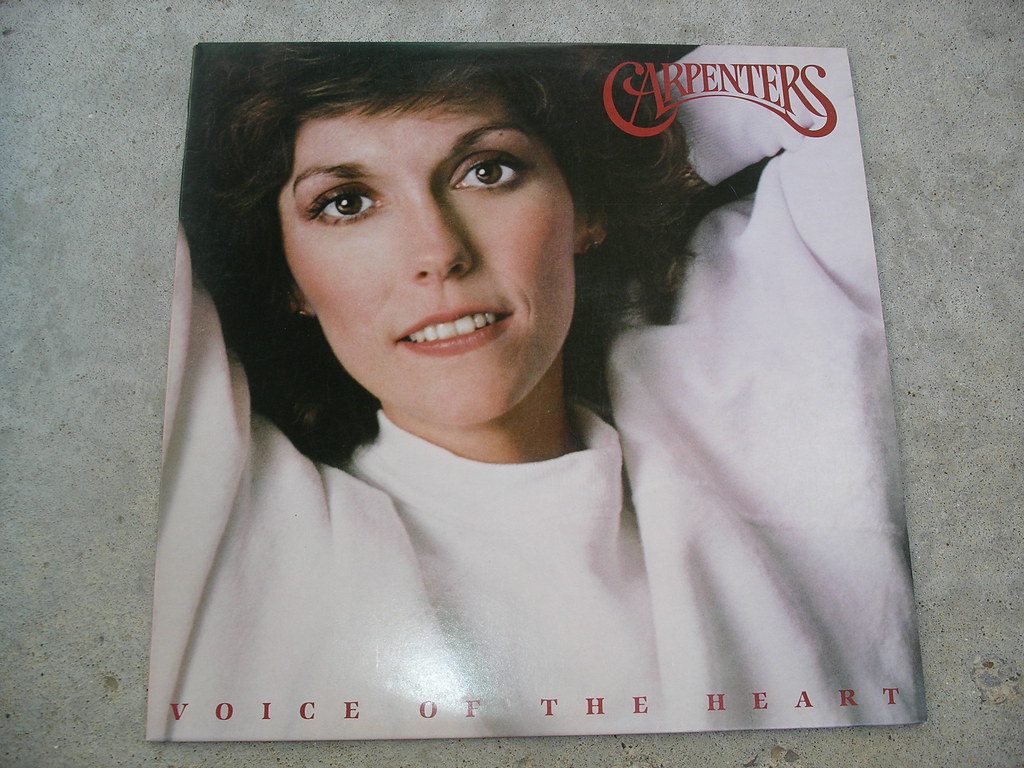
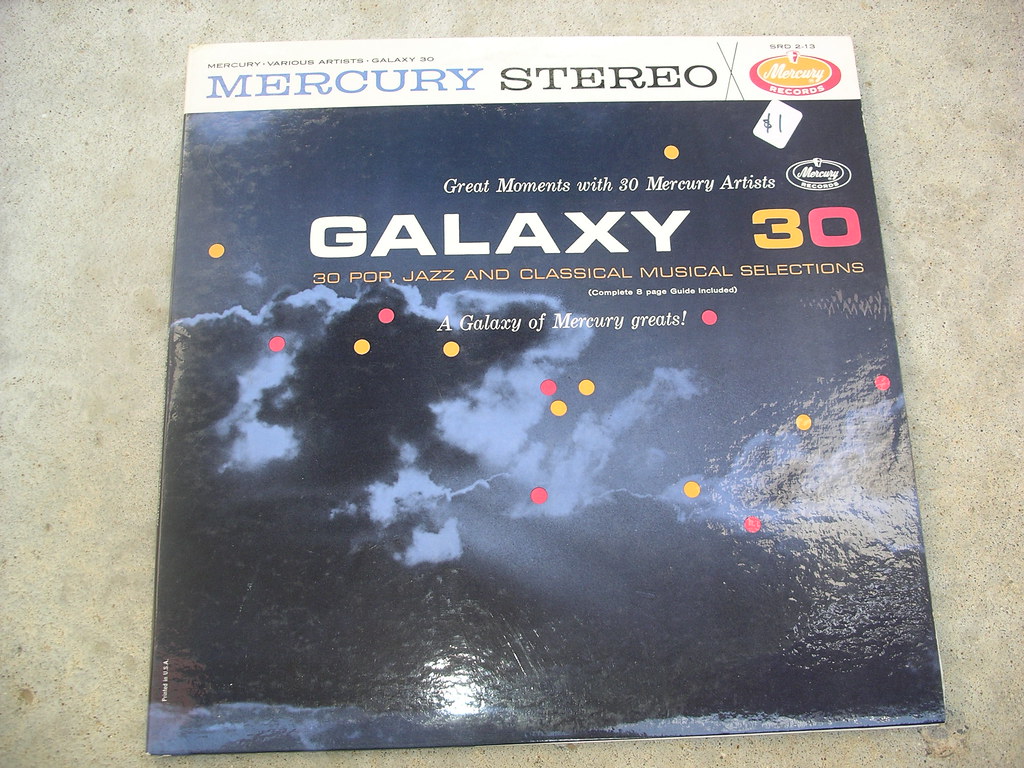
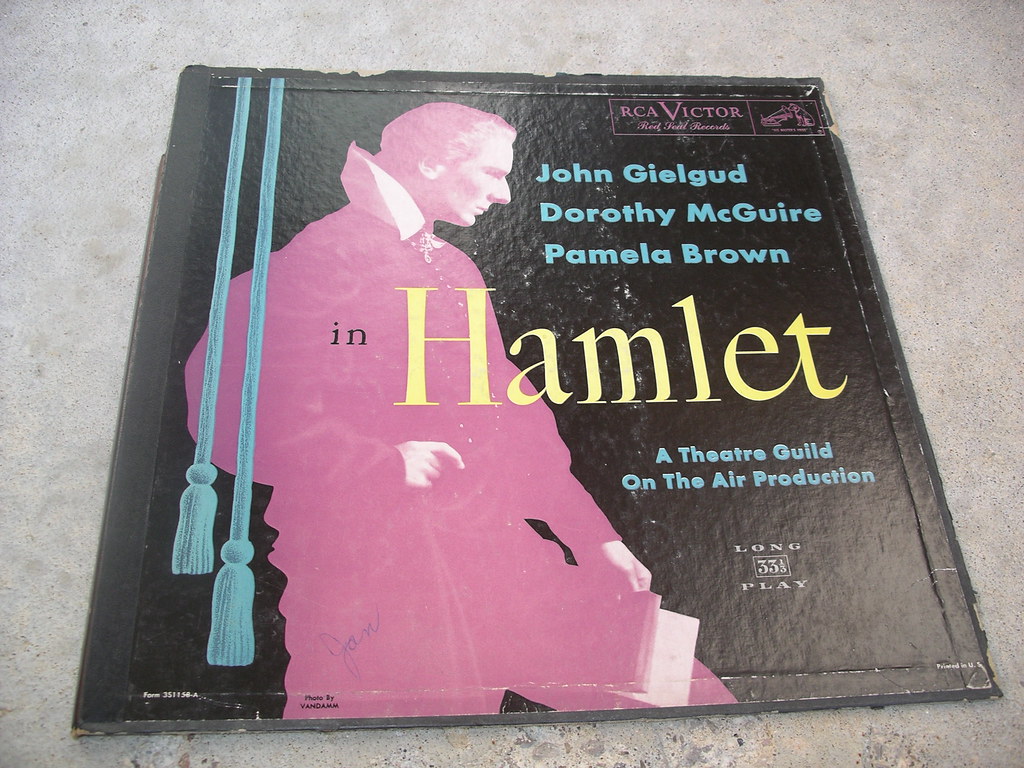
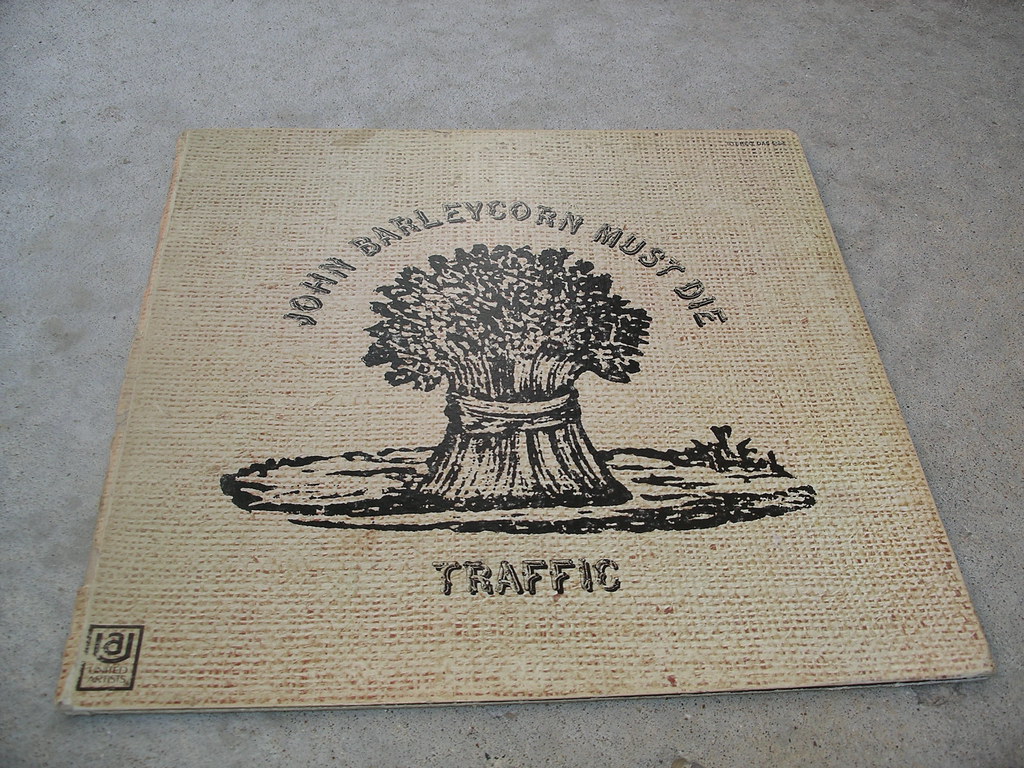
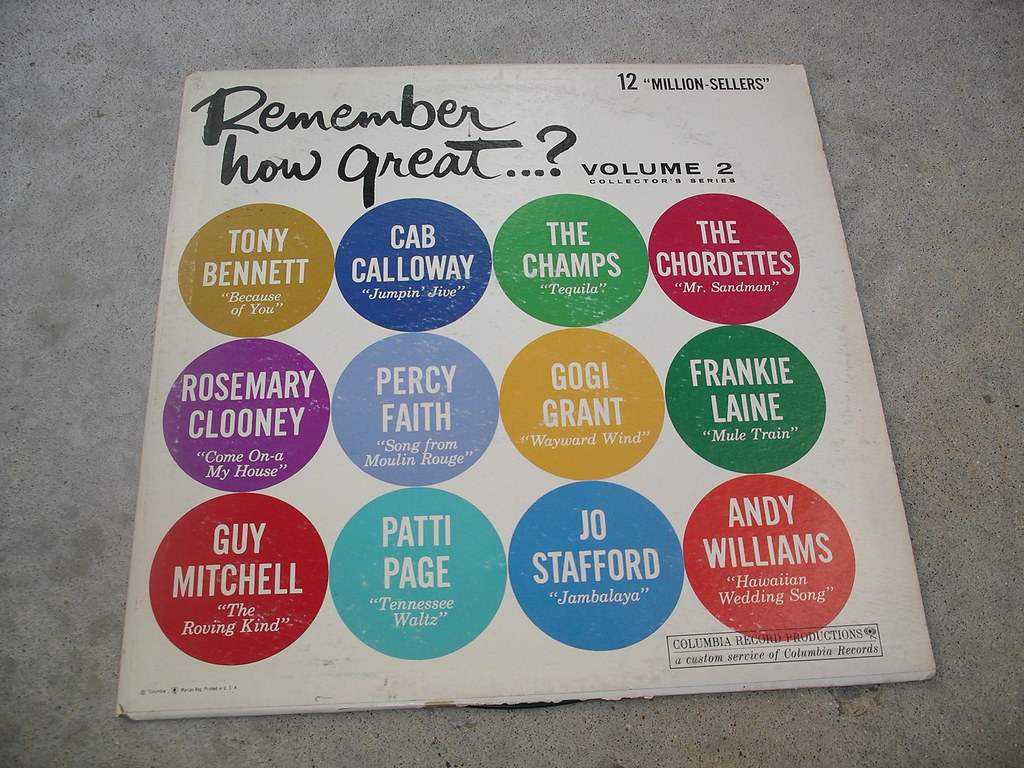
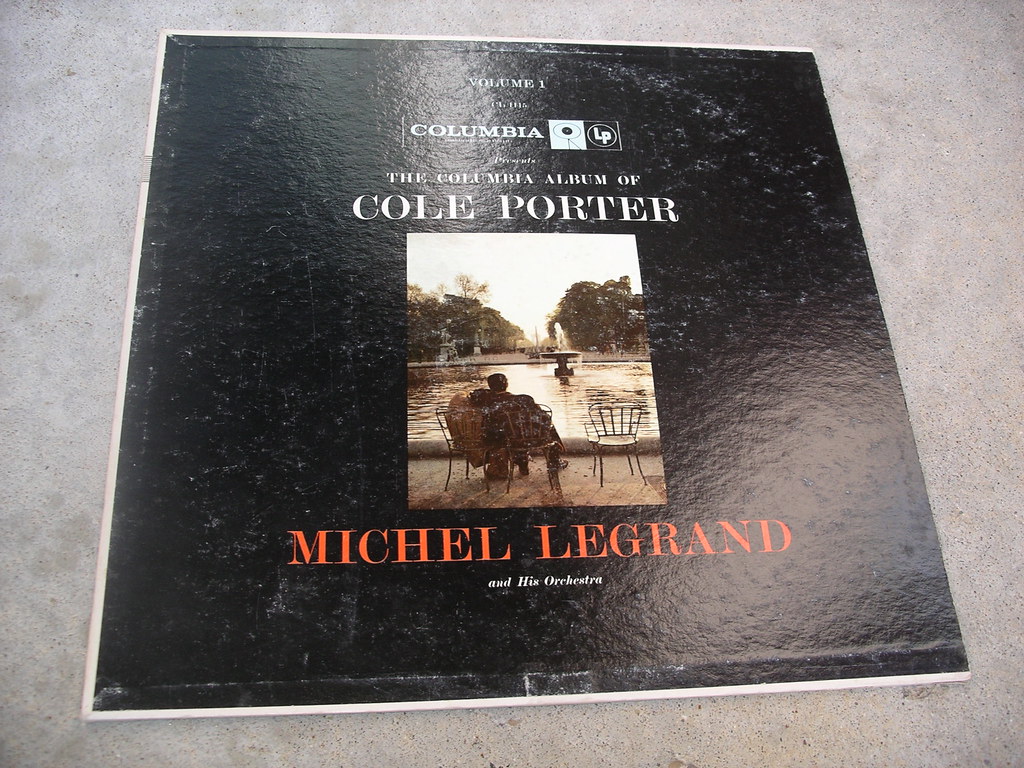
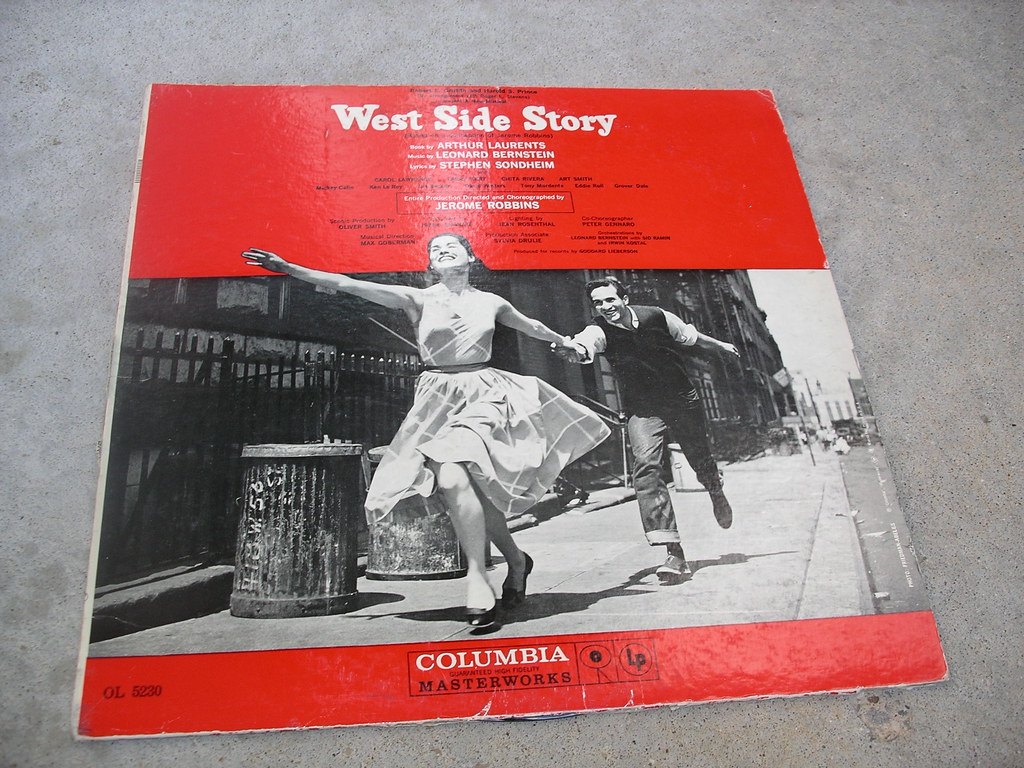
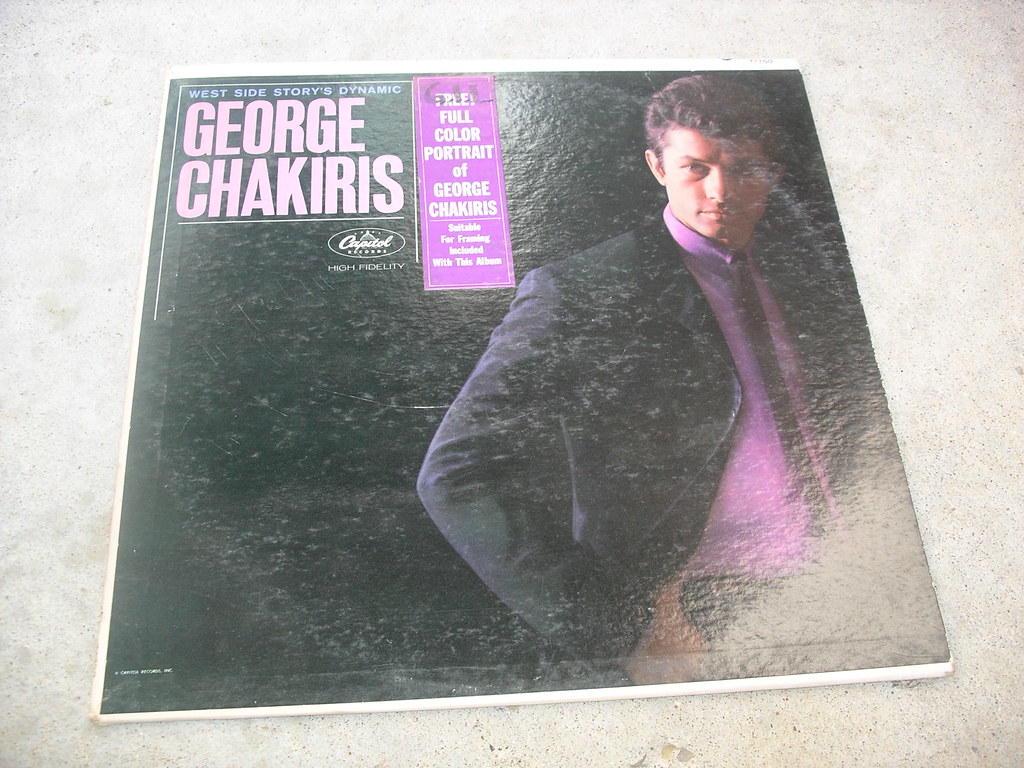
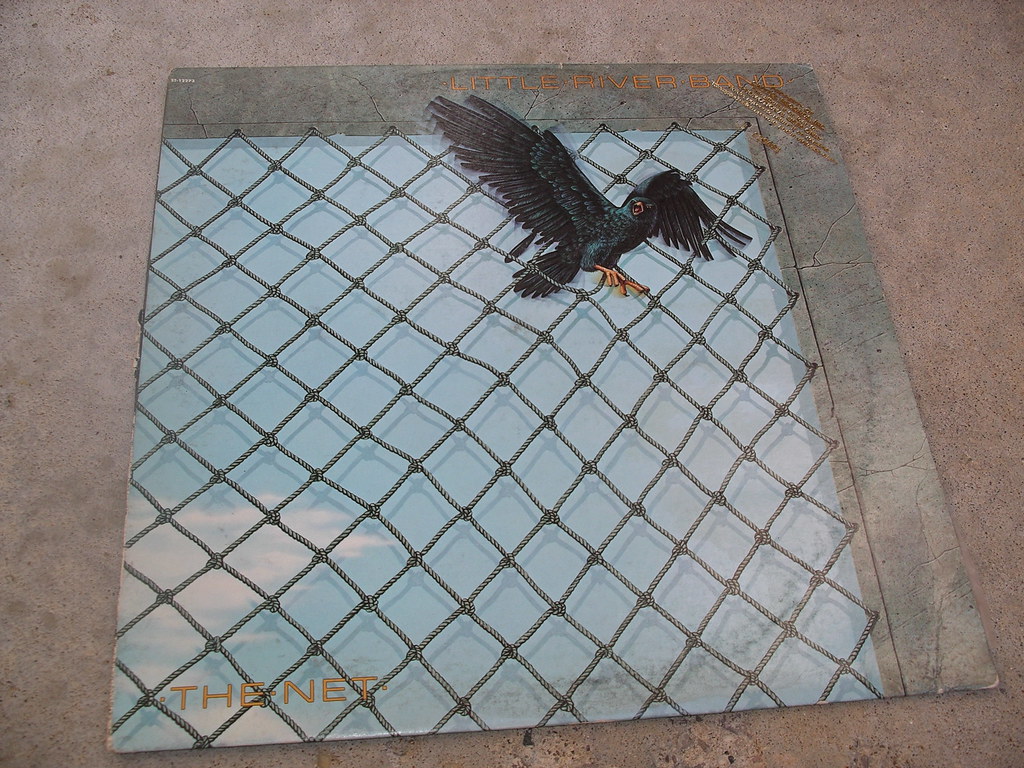
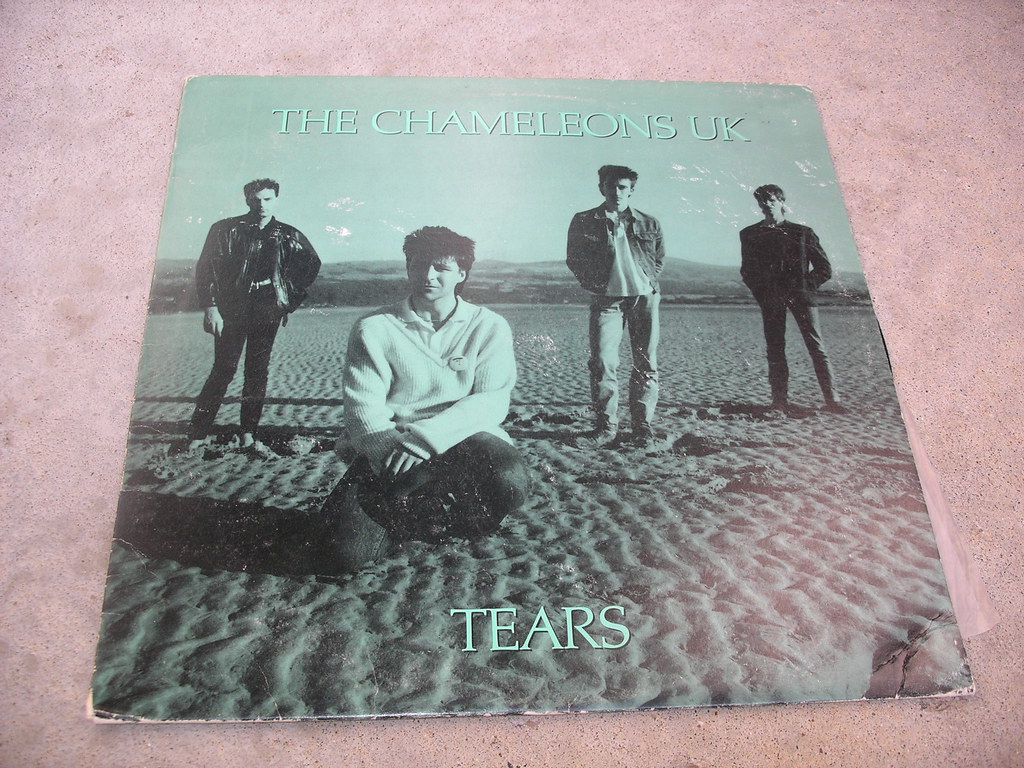
I happened to be about a week ago. Although I've been known to buy stuff there, what I like to do best is go through their two shelves of free stuff that's just there to be taken. It's a little like treasure hunting, because you have no idea what good or bad things you're going to find. I found a ton of stuff, but I'm just going to go through a few highlights.










Wednesday, July 21, 2010
Arthur Wants
This past weekend, Arthur posted their call for submission. Arthur is this delightful little zine that I've been known to contribute to. If you're interested in writing something, check out their guidelines and write something.
Friday, July 16, 2010
We Are Not the Measure of All Things
This is a video of Carl Sagan discussing cosmology, or what we see the universe as.
I'm not necessarily into the pictures that are attached with this video.
That said, I've always really enjoyed Sagan. He's one of the most eloquent and easy-to-understand writers on science. If you've never read Contact, consider it. As great as the movie is, the novel is much more complicated, more thoughtful and better.
I love one of those last lines: "We are the custodians of the meaning of life...Let us find ourselves a worthy goal."
Thursday, July 15, 2010
Go Comedy Go!
I went to a performance at Go Comedy last weekend. Back when I was in high school, I used to do improv as part of the normal diet for young actors, which is why I suspect one of my friends invited me to go.
We went for two of their shows, a showdown and Dark Matter. The Showdown was two teams of actors competing with each other, somewhat similar to Who's Line Is It Anyway? One of the actors even claimed to have played Punky Brewster (and she was one of the better actors.) Dark Matter just featured the actors making new scenes over and over again. That sounds potentially boring, but they were clearly having fun. You got the sense that they were doing this just because it was fun for them.
Between shows, one of the actors came up to me and my friends and thanked us for coming. "Is that normal?" I asked one of them.
"They hang out at the bar a lot and will talk to people, so yeah." I was surprised to hear that, because I figure people wouldn't be into that sort of thing.
The only thing I was uncomfortable with was the audience participation. I don't mind other people participating, but I don't like getting called on myself. I like to sit back and enjoy the show.
We went for two of their shows, a showdown and Dark Matter. The Showdown was two teams of actors competing with each other, somewhat similar to Who's Line Is It Anyway? One of the actors even claimed to have played Punky Brewster (and she was one of the better actors.) Dark Matter just featured the actors making new scenes over and over again. That sounds potentially boring, but they were clearly having fun. You got the sense that they were doing this just because it was fun for them.
Between shows, one of the actors came up to me and my friends and thanked us for coming. "Is that normal?" I asked one of them.
"They hang out at the bar a lot and will talk to people, so yeah." I was surprised to hear that, because I figure people wouldn't be into that sort of thing.
The only thing I was uncomfortable with was the audience participation. I don't mind other people participating, but I don't like getting called on myself. I like to sit back and enjoy the show.
Labels:
audience,
Go Comedy,
high school,
performances,
shows
Wednesday, July 14, 2010
Battle
Yesterday, I posted some photos from a reenactment of the French and Indian War. That post mostly featured the British camp and what it looked like. I have some more pictures here from the actual battle they recreated.
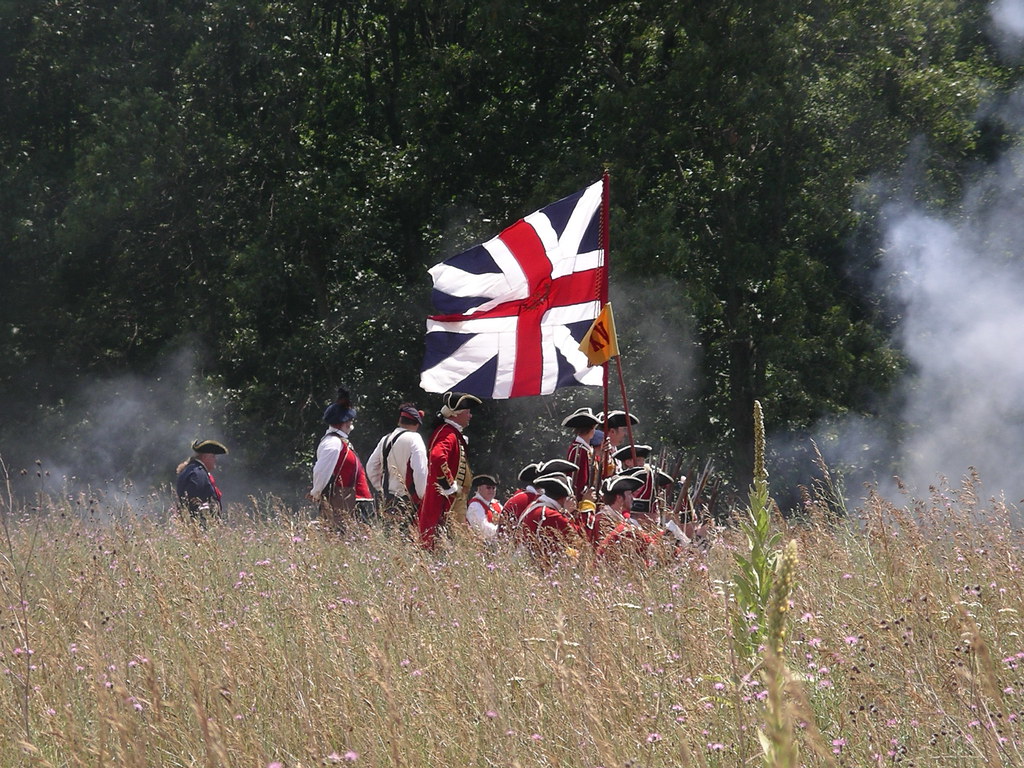
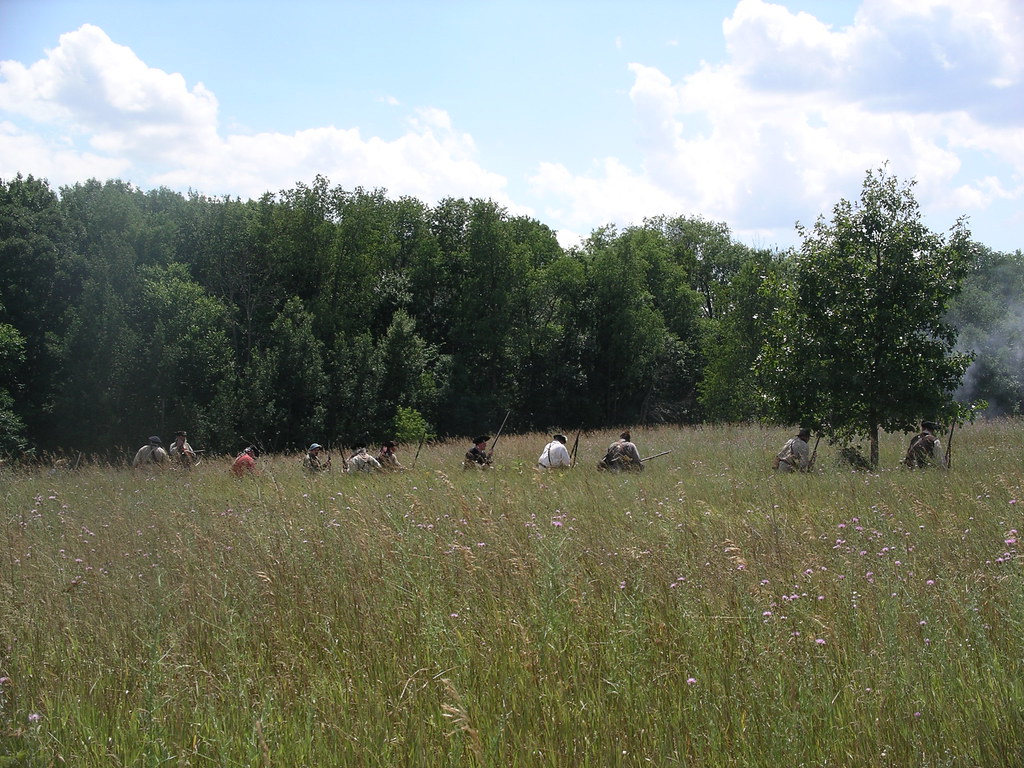

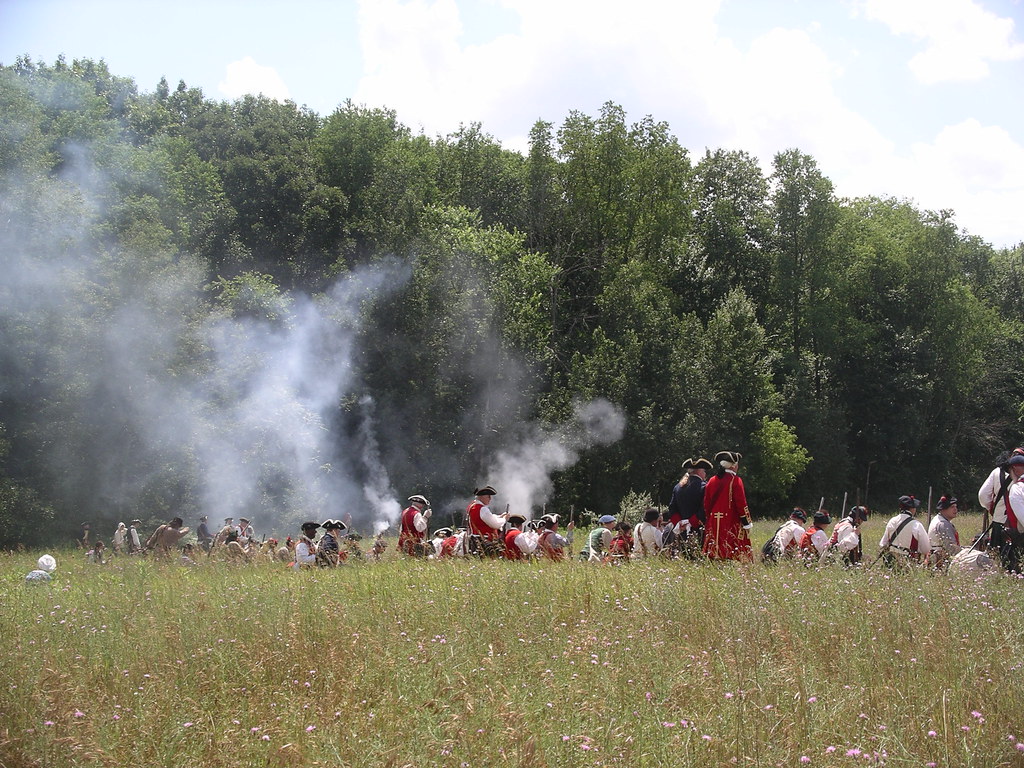
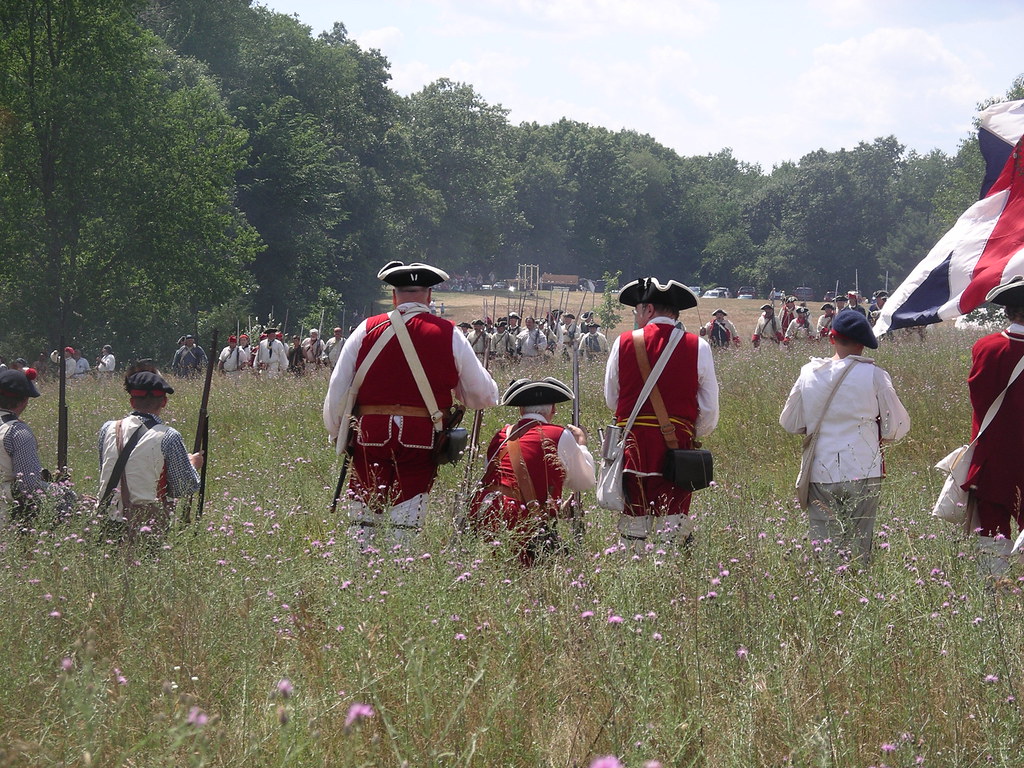
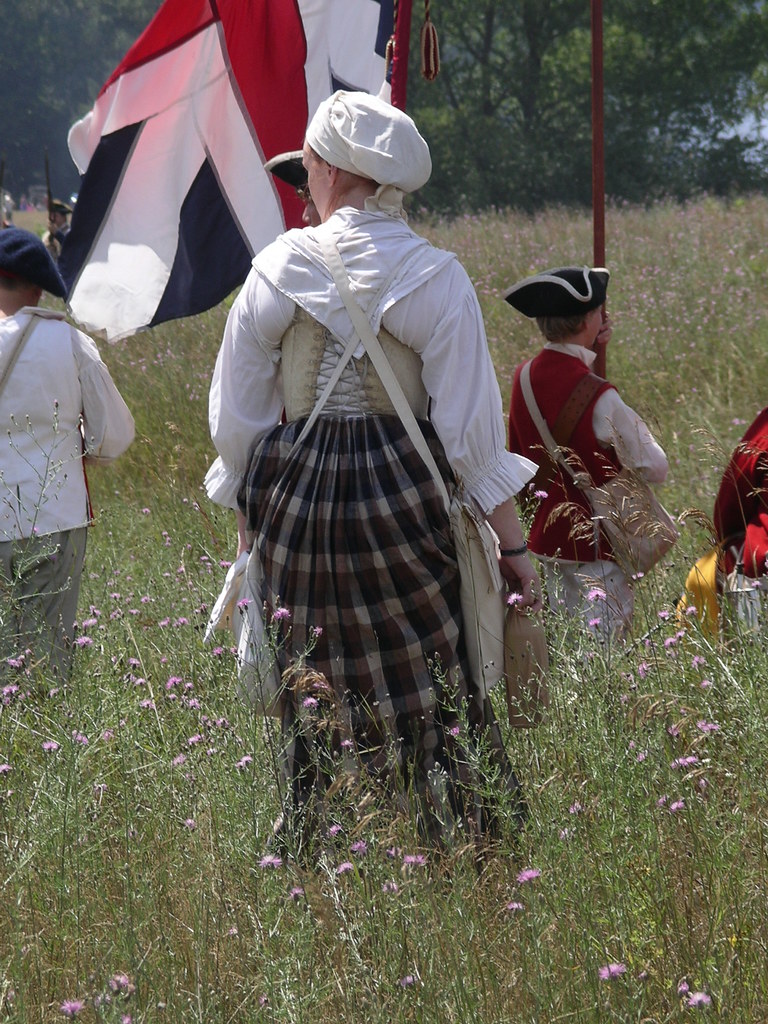
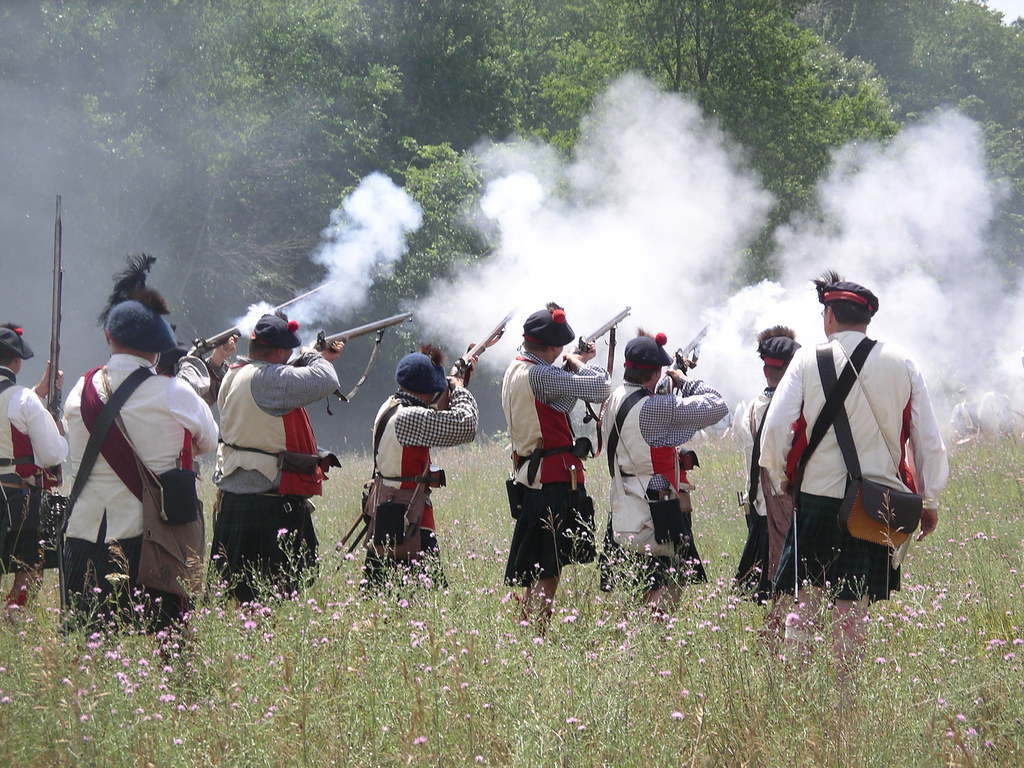
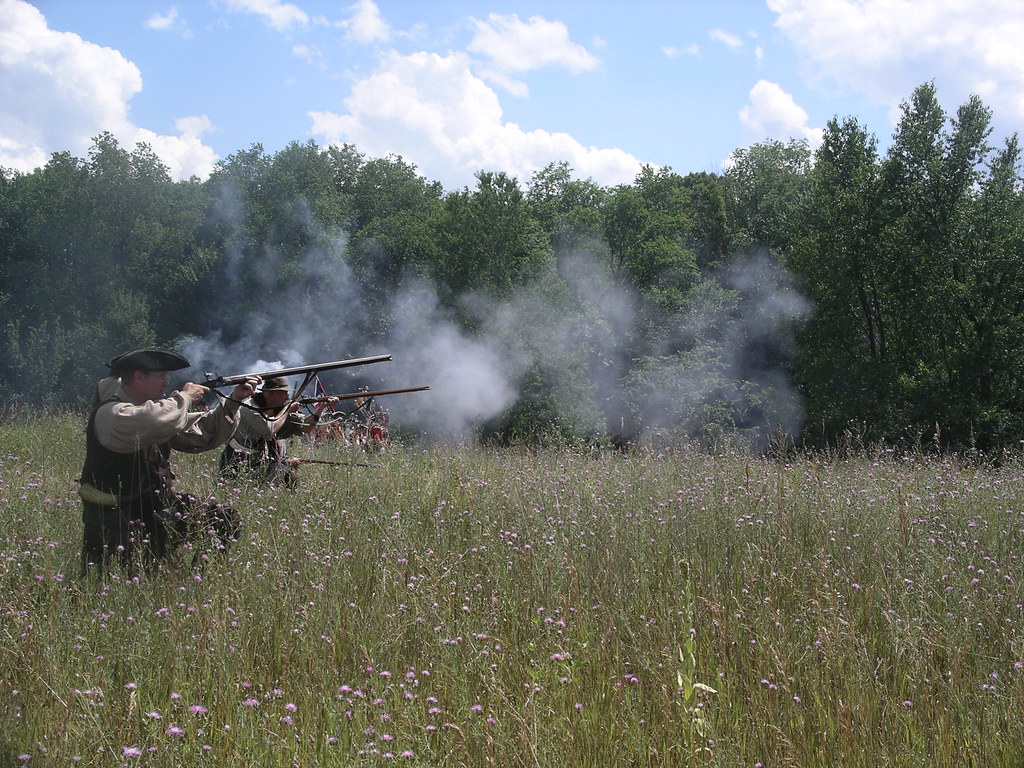
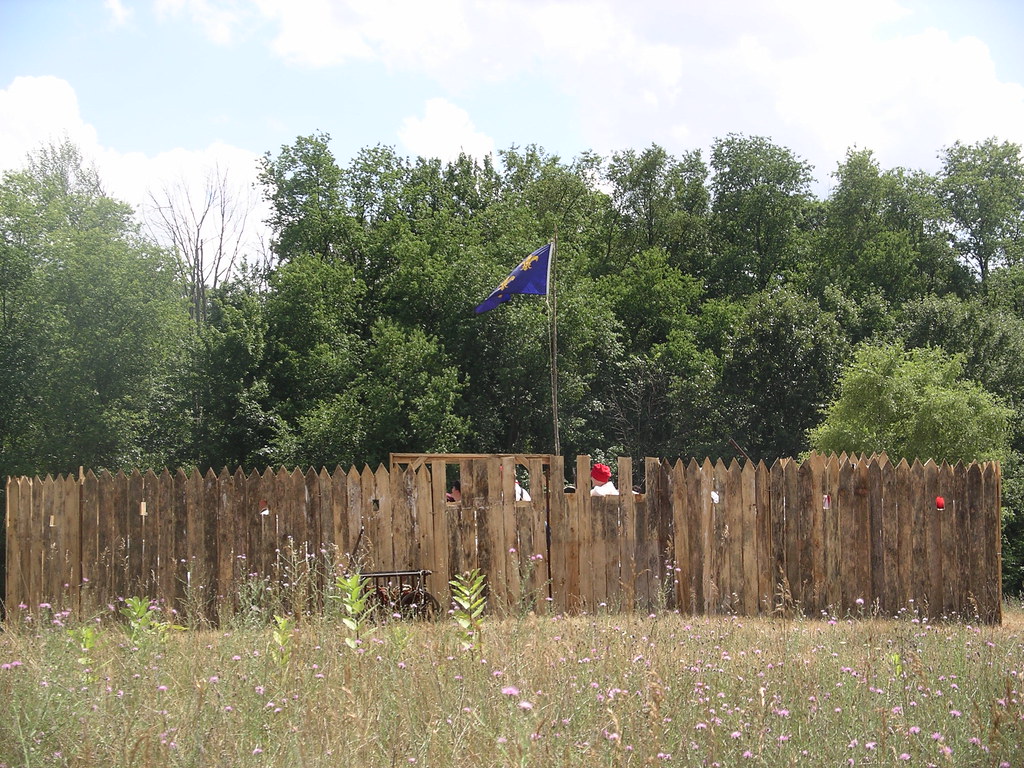
One of the things I wanted pictures of but couldn't get close enough to see was the Native Americans who sided with the French. They would make all sorts of noise and then come out and shoot some of the British, and then retreat back into the trees, repeating this several times over.
The battle was very impressive. There were eight hundred reenactors there, so there was a lot of impressive coordination and organization that went on to pull this off.









One of the things I wanted pictures of but couldn't get close enough to see was the Native Americans who sided with the French. They would make all sorts of noise and then come out and shoot some of the British, and then retreat back into the trees, repeating this several times over.
The battle was very impressive. There were eight hundred reenactors there, so there was a lot of impressive coordination and organization that went on to pull this off.
Tuesday, July 13, 2010
The British Camp
I went out to this historical reenactment at one of the local parks. I've actually never been to one of these before, despite being a total history nerd.
So, I've posted some pictures here of the event this weekend. These are from the British camp. There were several camps: one for the British, another for the French, one for the Native Americans siding with the French, a marketplace, and a docking area.
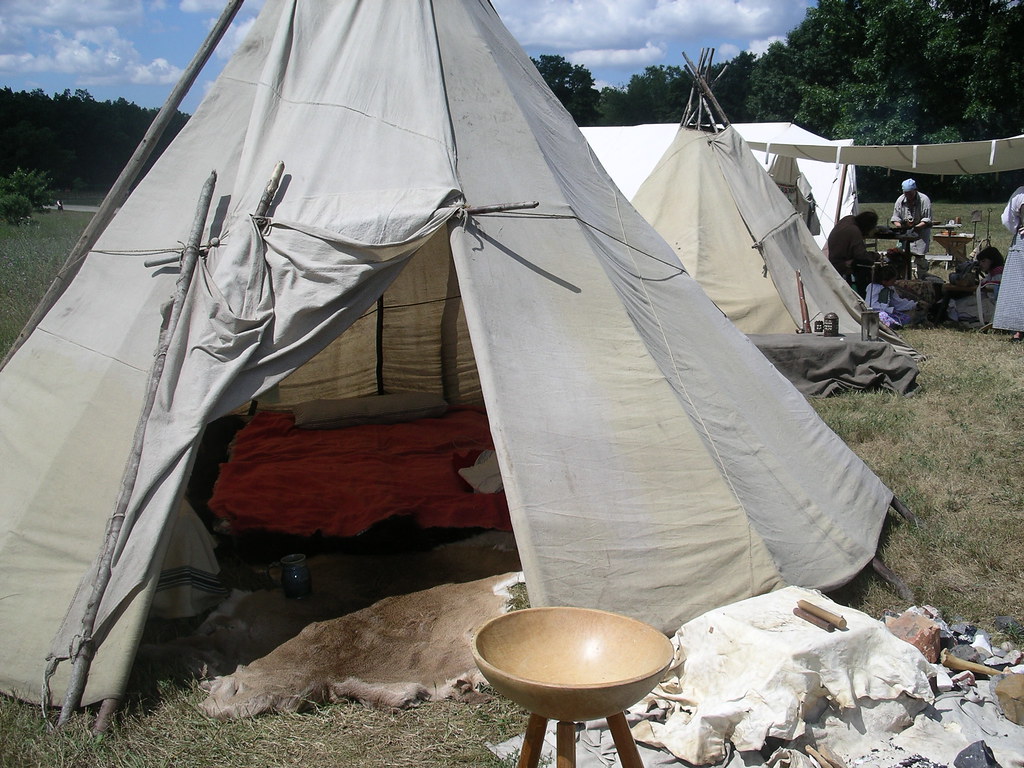
This first picture here is of a tepee. One of the things I was looking out for here was the depiction of Native Americans. They were a pivotal part of the French and Indian War, and I was wary of how they might be depicted. The problem is I don't really know much about Native culture, so it's hard for me to judge how good or bad it was. This seemed alright to me.
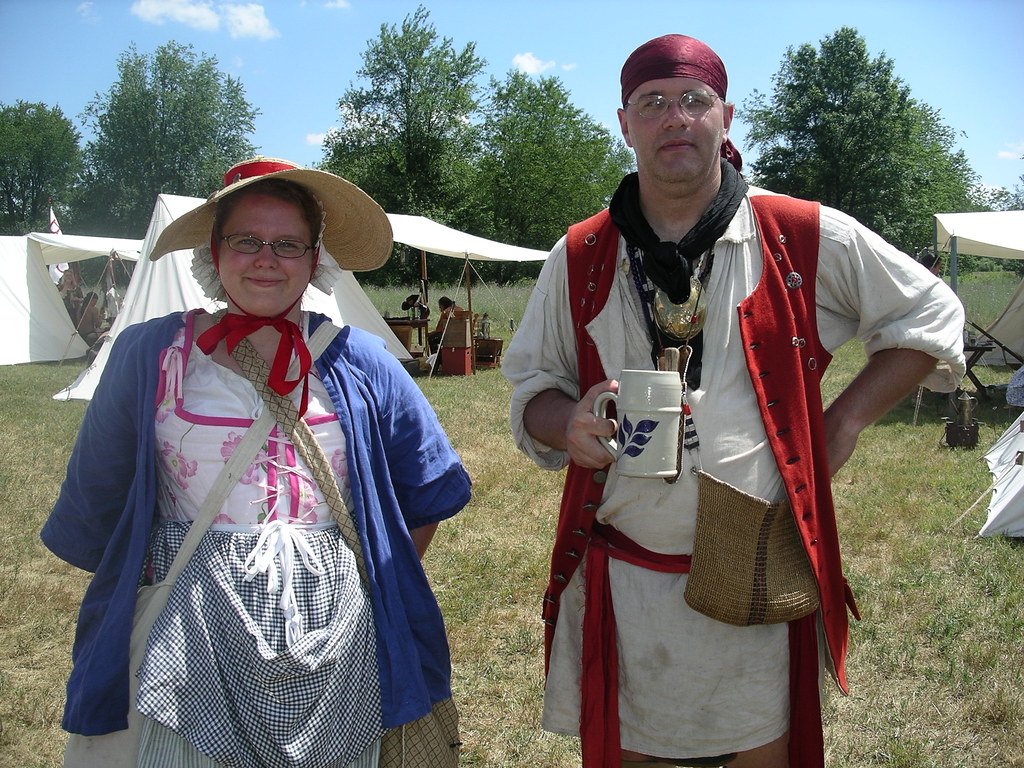
This is a picture of the first people I talked to. My friends and I weren't sure if we could take pictures or not, so I asked a "local." Turns out that it's considered weird not to take pictures, and that you don't have to ask reenacters, because they expect it. The young woman here was nice enough to explain to me that she was a loose woman, and that her clothes were very close to what people back then would have considered being naked. As I talked to others, I could tell that people loved this and that they were passionate about history, but also interested in having fun. Everyone was very friendly
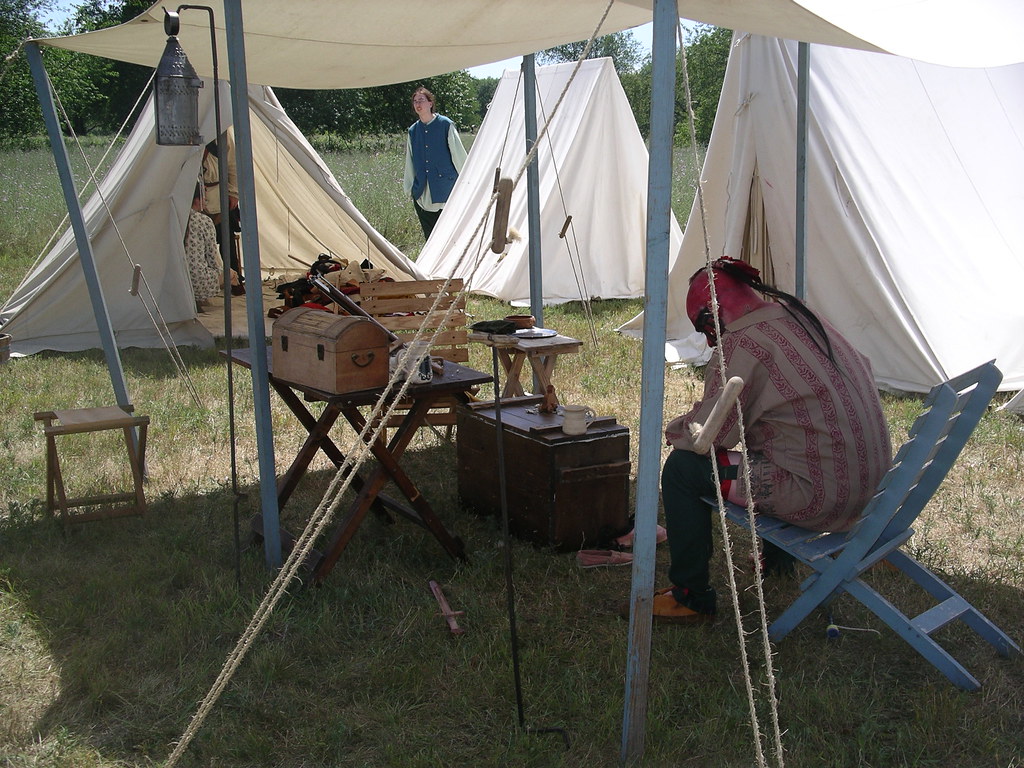
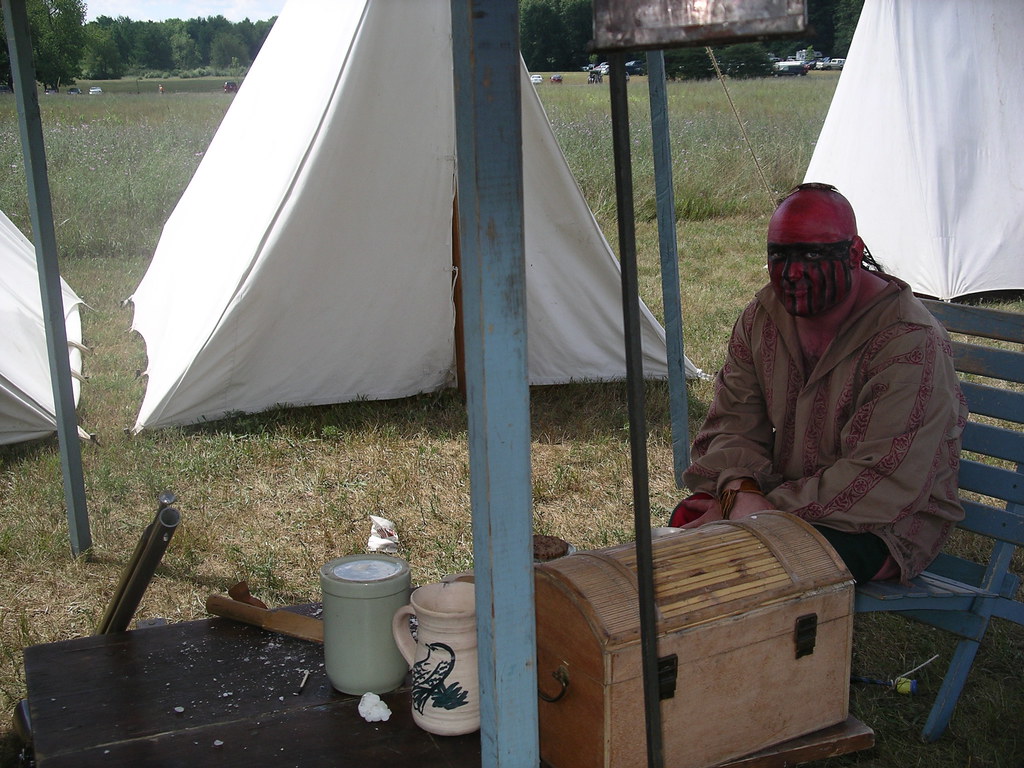
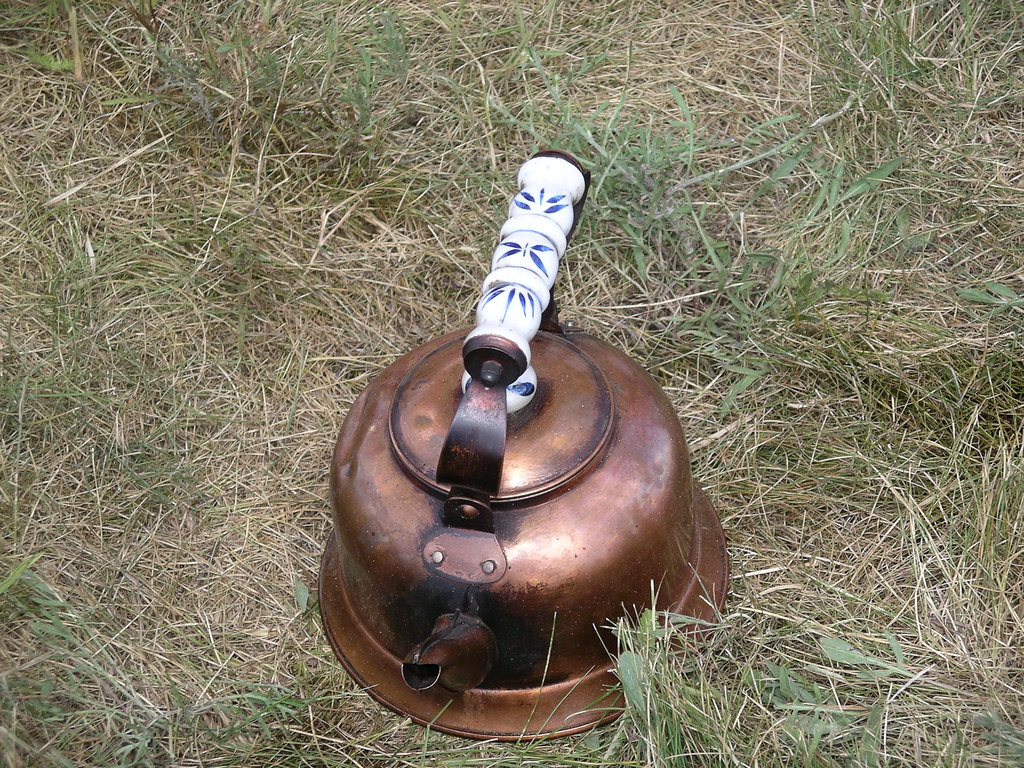
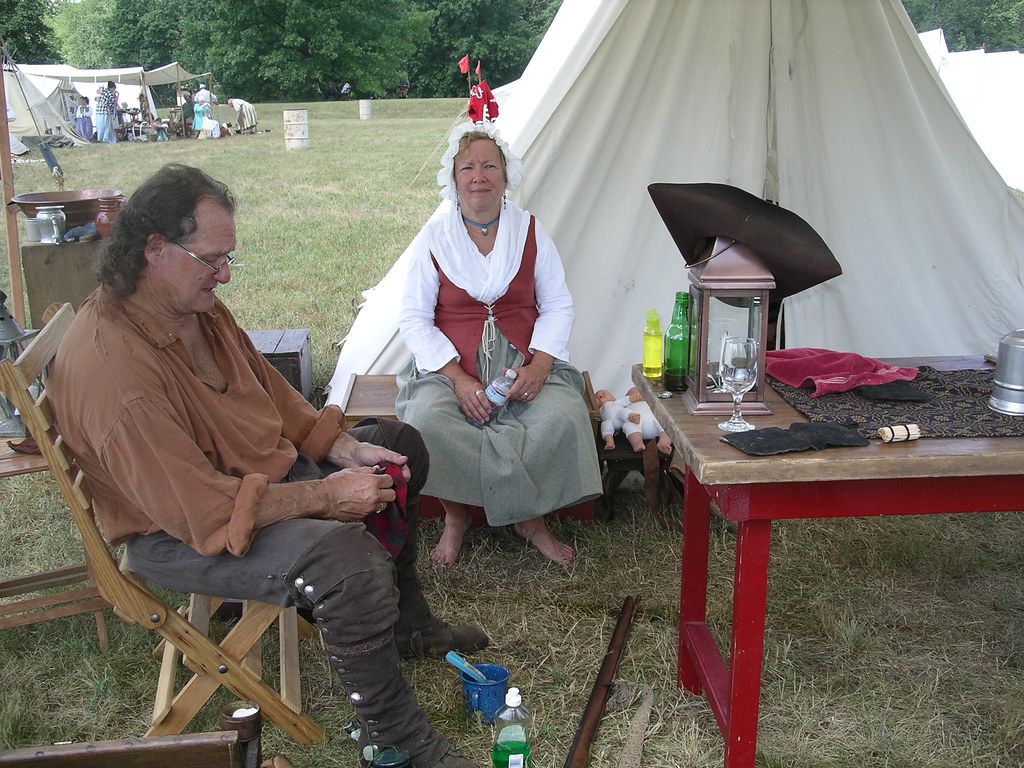
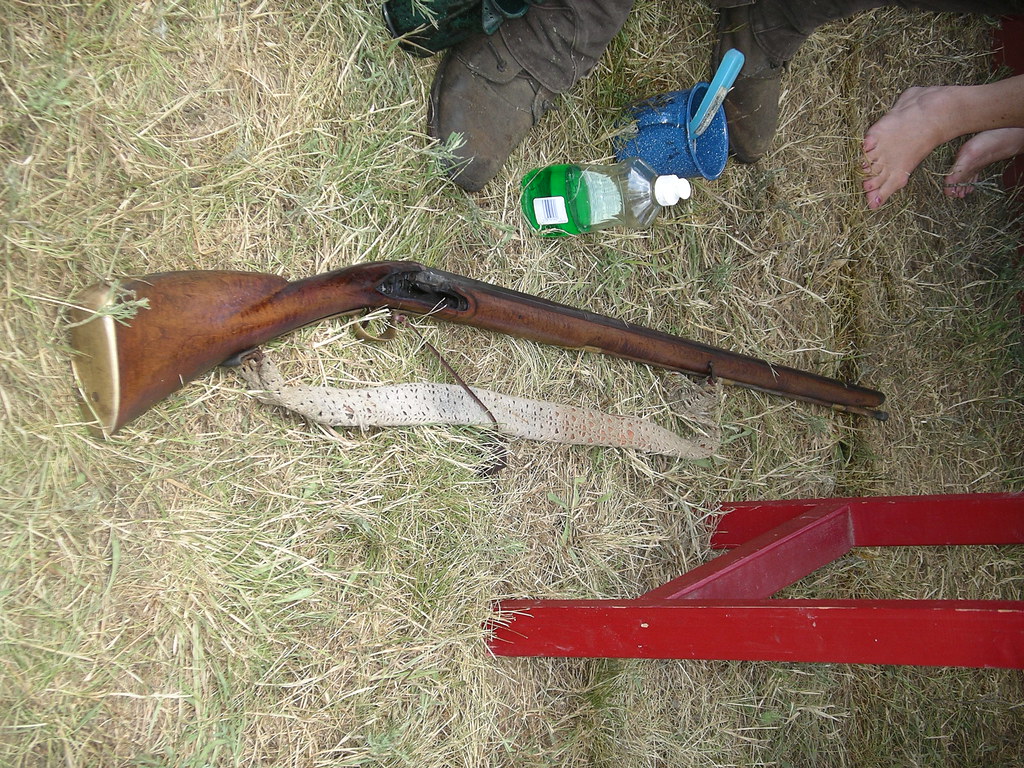
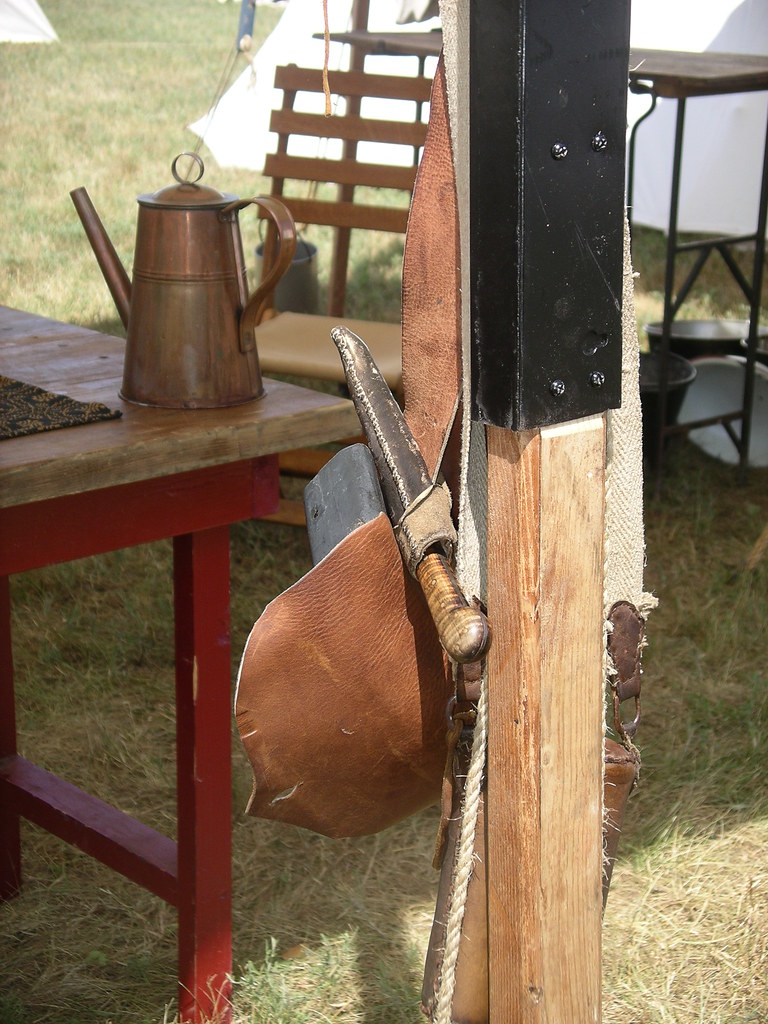
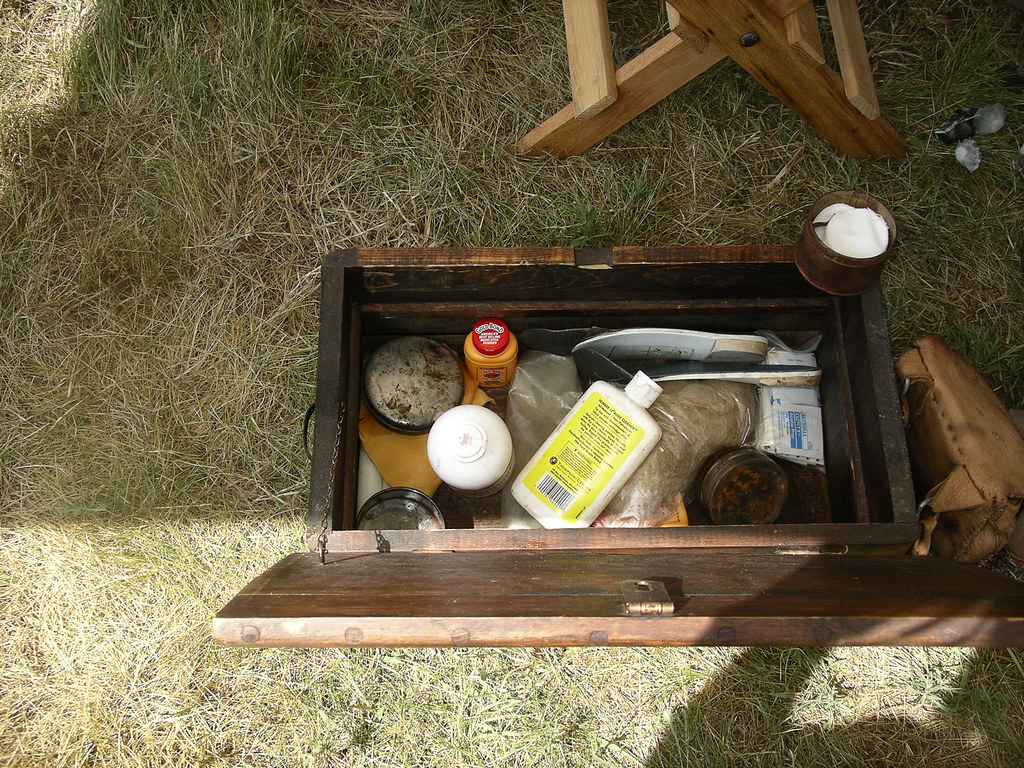
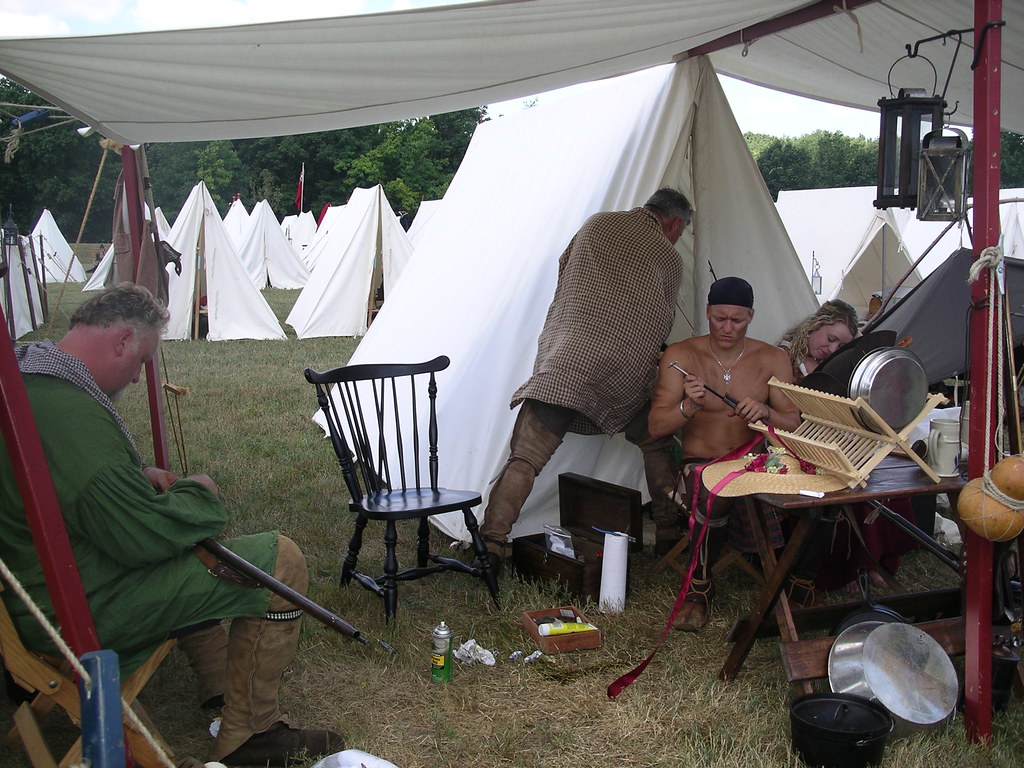
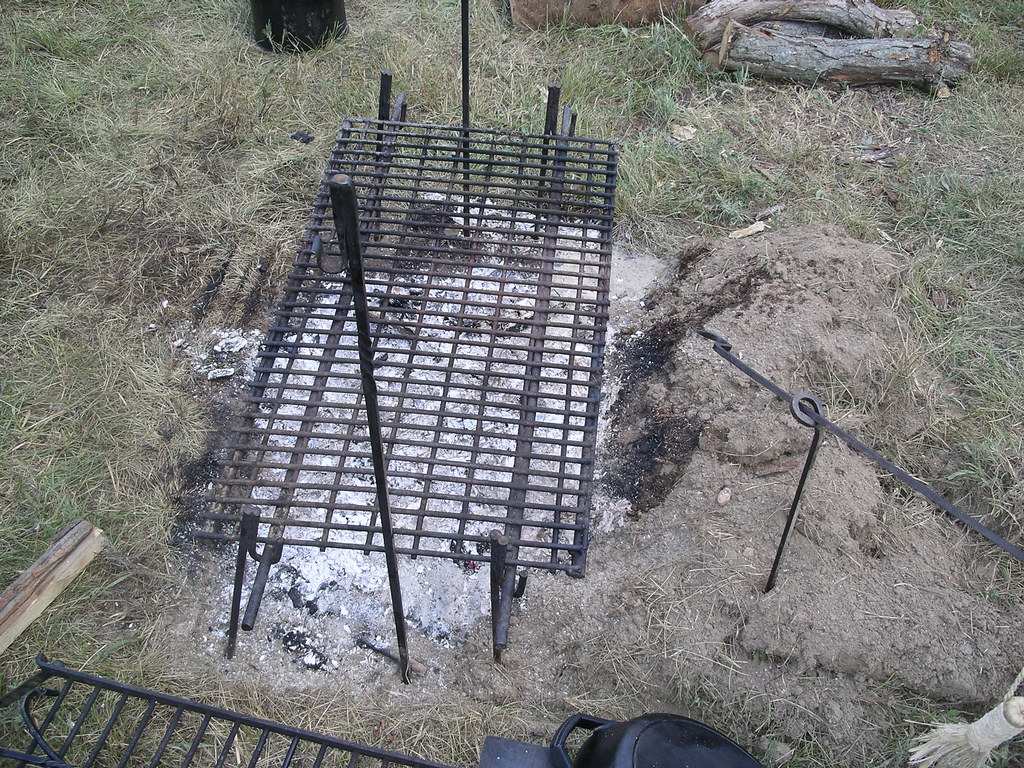
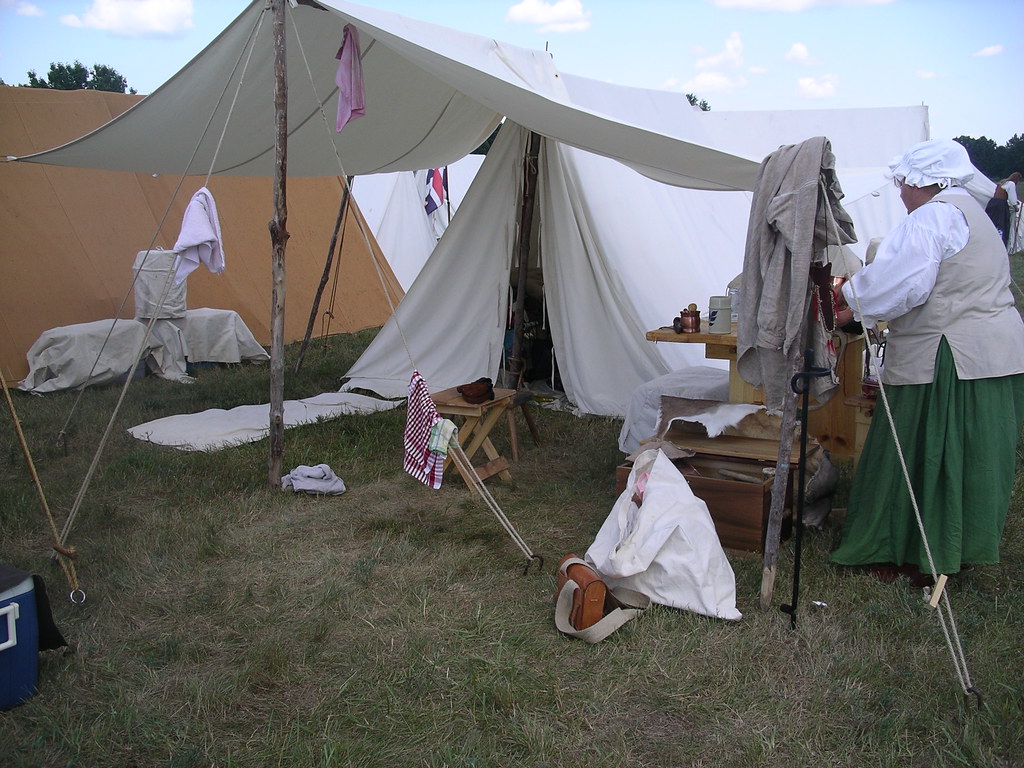
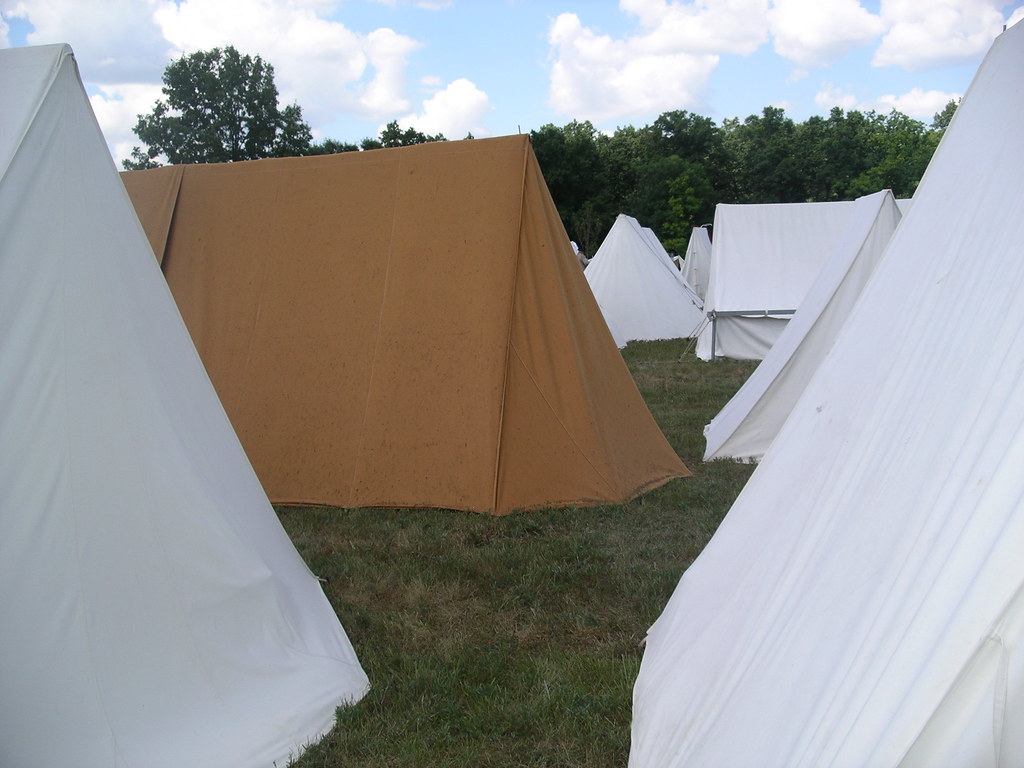
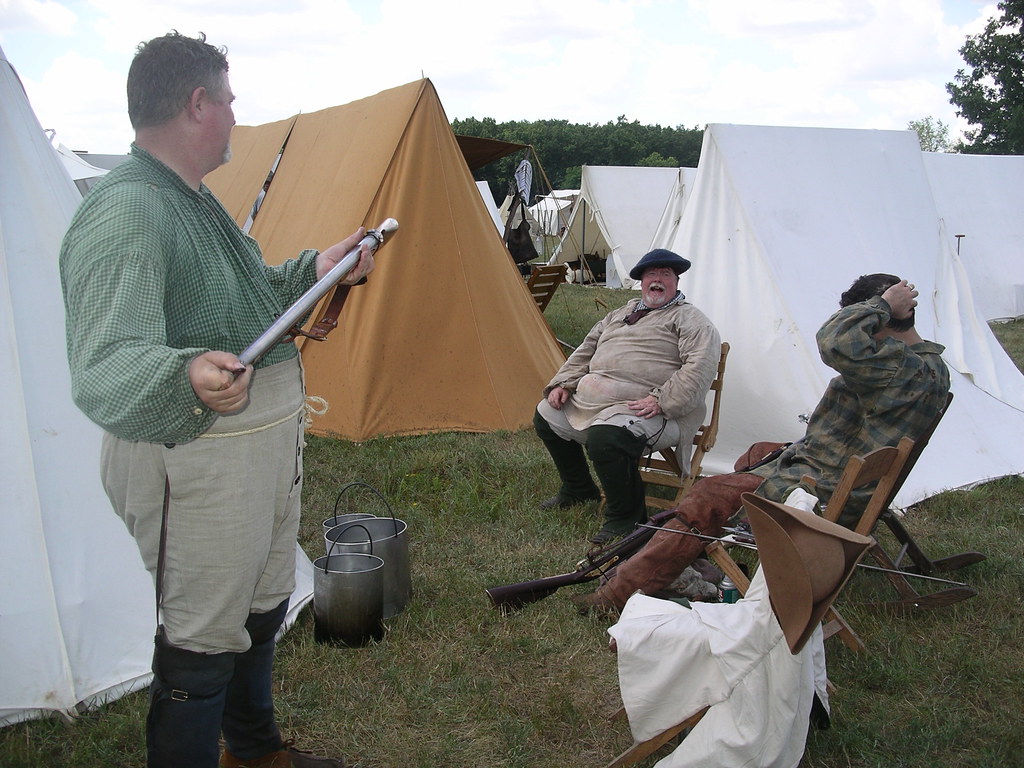
As always, there are some more photos over at my Flickr site, if you want to see more.
So, I've posted some pictures here of the event this weekend. These are from the British camp. There were several camps: one for the British, another for the French, one for the Native Americans siding with the French, a marketplace, and a docking area.

This first picture here is of a tepee. One of the things I was looking out for here was the depiction of Native Americans. They were a pivotal part of the French and Indian War, and I was wary of how they might be depicted. The problem is I don't really know much about Native culture, so it's hard for me to judge how good or bad it was. This seemed alright to me.

This is a picture of the first people I talked to. My friends and I weren't sure if we could take pictures or not, so I asked a "local." Turns out that it's considered weird not to take pictures, and that you don't have to ask reenacters, because they expect it. The young woman here was nice enough to explain to me that she was a loose woman, and that her clothes were very close to what people back then would have considered being naked. As I talked to others, I could tell that people loved this and that they were passionate about history, but also interested in having fun. Everyone was very friendly












As always, there are some more photos over at my Flickr site, if you want to see more.
Labels:
historical reenactment,
jokes,
parks,
people,
photos
Monday, July 12, 2010
Databasing
This past weekend I went to the library to start on a database I'm building for them. It's just suppose to be, at this point, a collection of all the students signed up for the Summer Reading Program. I took time putting all the information together in a coherent chunk.
One of the toughest things involves reading people's writing. I'm often struck by how difficult it is to tell what people write. I've been spoiled by reading so much in books and online, where type is all standardized.
Once I get going, I'm pretty effective. In the less than two hours that I worked on it, I made it through almost four hundred registration papers. And I only began on the S's, so there's still a ton of kids. (Way more, it seems, than last year.)
In the meantime, I sat at the desk waiting for kids to come in. There were only maybe four or five, but that's okay. Shelby came in and said hi to me, which was really nice. And I got to meet another volunteer named Brandon. He too is an English major, so we talked about books we like.
One of the toughest things involves reading people's writing. I'm often struck by how difficult it is to tell what people write. I've been spoiled by reading so much in books and online, where type is all standardized.
Once I get going, I'm pretty effective. In the less than two hours that I worked on it, I made it through almost four hundred registration papers. And I only began on the S's, so there's still a ton of kids. (Way more, it seems, than last year.)
In the meantime, I sat at the desk waiting for kids to come in. There were only maybe four or five, but that's okay. Shelby came in and said hi to me, which was really nice. And I got to meet another volunteer named Brandon. He too is an English major, so we talked about books we like.
Sunday, July 11, 2010
Elemental
The best blogs are the ones with strange ideas. This one is about blogging the Periodic Table of Elements.
This blog is great because it gives so many interesting facts about things. For example, did you know Lewis and Clark traveled with mercury-laced tablets? They were used to help track down where Lewis and Clark had stayed on their expedition. That antimony was studied by Newton in an attempt to make gold? That a form of that same element was used by Egyptian women as eyeliner?
The only thing that troubled me was that the author mentioned that he used to play with mercury, which struck me as one of the unsafe things to do. When I was in high school, someone broke a massive barometer in my chemistry lab, and we were out for days and someone cleaned it all up.
The author also has a really cool looking book about it called The Disappearing Spoon.
This blog is great because it gives so many interesting facts about things. For example, did you know Lewis and Clark traveled with mercury-laced tablets? They were used to help track down where Lewis and Clark had stayed on their expedition. That antimony was studied by Newton in an attempt to make gold? That a form of that same element was used by Egyptian women as eyeliner?
The only thing that troubled me was that the author mentioned that he used to play with mercury, which struck me as one of the unsafe things to do. When I was in high school, someone broke a massive barometer in my chemistry lab, and we were out for days and someone cleaned it all up.
The author also has a really cool looking book about it called The Disappearing Spoon.
Friday, July 9, 2010
The Anxiety of Influence
I was reading an article called Nancy Armstrong's "What feminism did to novel studies" and one of the things it mentioned early on in the article was something called the "anxiety of influence." As always when I hear something that I don't know about, I go out in search of answers.
It also seems that, based on a lot of the modern poetry I read, that a lot of people are influenced by Wallace Stevens. I actually like Stevens a lot, but a lot of critics have complained over the years that he was "willfully difficult." I think there is some truth to it, but it's always struck me as a good thing, because then you have to work to understand his poems. You have to read them more than twice. Most of the other good poets I read now are like this, some to a greater degree than others. And I like this. I was tickled to discover the article summarizing Harold Bloom's theory mentioned Stevens, because he's the first person I thought of when I read the basic definition of the anxiety of influence.
One of my professors once mentioned that some people are more into theory than others. I am into theory, though I like to see it applied to works of literature, especially the kind I am familiar with, because then I have a much easier time seeing what theorists mean when they assert a particular claim. Seeing them apply an idea demonstrates they have thought the idea out and illustrates for readers how they should similarly apply the idea.
To this end, I then wanted to do a little research into Gilbert and Gubar's feminist response to Bloom's idea. According to Armstrong's article, Bloom had imagined literature as a product of the oedipal struggles between father and son. Gilbert and Gubar, naturally, imagined how women fit into theory, since women have been producing literature too. Gilbert and Gubar decided that women's literature was always struggling with the male tradition of literature: they can't outright rebel from it but instead must demonstrate they can work within it.
One of the many complaints I've heard of women's literature over the years is that it never does anything new or daring. Maybe it's because we are forced into a defensive position, much like when dealing with something like the gaze. We're never able to just create art for the sake of creating art for ourselves or the way we want it. We have to create art that will earn the respect of our male colleagues.
I'm hoping, as women fight to have a better place within society, that these problems will (and hopefully already have) dissipated.
I am also wondering if there is a way to complicate Gubar and Gilbert's response in some way involving something like race or sexuality. I think it would be easy to say that many people of color have also felt the need to earn their male (and also white) colleagues respect by working within the traditional rules of art. For example, I took a class a couple of years ago on the African diaspora, and the majority of things we read were written in a traditional novel or essay form. I'm wondering if those mediums were chosen not because they were necessarily the best mediums to communicate the message in or the because they were the creator's first choice, but because they were the forms that white men would respond best to. Sometimes we watched things that were avant garde in form, and some of my fellow students reactions were masked by their dislike of a medium they were unfamiliar with, covering up how uncomfortable the messages of the piece were.
I took a class on African history, and we read an essay by an African author who complained about how white American and European authors dominated the educational lives of Africans. When some of these Africans decided to be writers, they felt forced to write not in their own native languages but in their oppressor's language, just to have their ideas heard. It seems like, at least in this case, authors of color weren't creating the art they wanted to, they were were creating it based on the traditions and rules of the dominant power, similar to what Gilbert and Gubar talk about.
It also seems that, based on a lot of the modern poetry I read, that a lot of people are influenced by Wallace Stevens. I actually like Stevens a lot, but a lot of critics have complained over the years that he was "willfully difficult." I think there is some truth to it, but it's always struck me as a good thing, because then you have to work to understand his poems. You have to read them more than twice. Most of the other good poets I read now are like this, some to a greater degree than others. And I like this. I was tickled to discover the article summarizing Harold Bloom's theory mentioned Stevens, because he's the first person I thought of when I read the basic definition of the anxiety of influence.
One of my professors once mentioned that some people are more into theory than others. I am into theory, though I like to see it applied to works of literature, especially the kind I am familiar with, because then I have a much easier time seeing what theorists mean when they assert a particular claim. Seeing them apply an idea demonstrates they have thought the idea out and illustrates for readers how they should similarly apply the idea.
To this end, I then wanted to do a little research into Gilbert and Gubar's feminist response to Bloom's idea. According to Armstrong's article, Bloom had imagined literature as a product of the oedipal struggles between father and son. Gilbert and Gubar, naturally, imagined how women fit into theory, since women have been producing literature too. Gilbert and Gubar decided that women's literature was always struggling with the male tradition of literature: they can't outright rebel from it but instead must demonstrate they can work within it.
One of the many complaints I've heard of women's literature over the years is that it never does anything new or daring. Maybe it's because we are forced into a defensive position, much like when dealing with something like the gaze. We're never able to just create art for the sake of creating art for ourselves or the way we want it. We have to create art that will earn the respect of our male colleagues.
I'm hoping, as women fight to have a better place within society, that these problems will (and hopefully already have) dissipated.
I am also wondering if there is a way to complicate Gubar and Gilbert's response in some way involving something like race or sexuality. I think it would be easy to say that many people of color have also felt the need to earn their male (and also white) colleagues respect by working within the traditional rules of art. For example, I took a class a couple of years ago on the African diaspora, and the majority of things we read were written in a traditional novel or essay form. I'm wondering if those mediums were chosen not because they were necessarily the best mediums to communicate the message in or the because they were the creator's first choice, but because they were the forms that white men would respond best to. Sometimes we watched things that were avant garde in form, and some of my fellow students reactions were masked by their dislike of a medium they were unfamiliar with, covering up how uncomfortable the messages of the piece were.
I took a class on African history, and we read an essay by an African author who complained about how white American and European authors dominated the educational lives of Africans. When some of these Africans decided to be writers, they felt forced to write not in their own native languages but in their oppressor's language, just to have their ideas heard. It seems like, at least in this case, authors of color weren't creating the art they wanted to, they were were creating it based on the traditions and rules of the dominant power, similar to what Gilbert and Gubar talk about.
Labels:
art,
dominant power,
essays,
feminism,
Gubar and Gilbert,
Harold Bloom,
ideas,
literature,
mediums,
Nancy Armstrong,
novel studies,
novels,
poems,
poets,
Wallace Stevens,
women
Thursday, July 8, 2010
Imagine This
When ever I've had a computer for a few years, inevitably something gets lost on in my documents files. Sometimes when I find it again, I am gently surprised by something.
I fished out a small set of poems I wrote when I was a freshman at Michigan State. I believe I may have fooled around with editing them my sophomore year, but I think they do a much better job at representing that first year than the second. There were three poems. Two of them were okay, but the third one was a wonderful little piece of imagist work. Even though I knew who William Carlos Williams was, my high school teachers had never gotten around to discussing the imagist movement of poetry, and I had sort of stumbled upon writing one while in college. When I showed this poem to a professor, that's the first thing she commented on. She was right, but I don't think I really understood how.
I'm kind of proud of this little piece I had forgotten.
I fished out a small set of poems I wrote when I was a freshman at Michigan State. I believe I may have fooled around with editing them my sophomore year, but I think they do a much better job at representing that first year than the second. There were three poems. Two of them were okay, but the third one was a wonderful little piece of imagist work. Even though I knew who William Carlos Williams was, my high school teachers had never gotten around to discussing the imagist movement of poetry, and I had sort of stumbled upon writing one while in college. When I showed this poem to a professor, that's the first thing she commented on. She was right, but I don't think I really understood how.
I'm kind of proud of this little piece I had forgotten.
Wednesday, July 7, 2010
Evolutionary Road
National Geographic has an article up this month called "Middle Awash: The Evolutionary Road." It's a dramatic article that discusses paleontologists looking for bones of hominids (the "missing link" species between apes and humans) in the Afar desert.
The article mentioned Ardi, a relatively recent find that is a million years older than the well-know Lucy fossil, who was found by one of the people featured in this article, Tim White. But what I liked about this article was its creative nonfiction tone. The author, Jamie Shreeve, went exploring for fossils, and discussed his or her impression along the way.
I'm interested in African culture, so the details about how the Afar, an people in the region the article explored, were the most interesting to me. The Afar are into pastoralism, they don't make their own tools, and the only modern thing they have access to are guns. They greet each other with something called a dagu, which is hand kisses and the exchange of news.
There are details even about these ancient people that I find really interesting. For example, Herto, a fossil, came from a people that clearly like to eat hippo, because the hippo bone in the area had clearly been nicked at with tools. A lot of discoveries also reveal how human and creative our ancestors were, with things like beads, bows, arrows, and metalwork. There are even specific names for the creations of some of these things, like Acheulean, which is the name of the stone-tool culture of Homo erectus. Tools were important, not just because they reveal creative minds behind them, but because they allowed hominids to compete with the other nearby predators, including lions and hyenas. They've also discovered a child's skill that reveals the flesh was carefully removed when still fresh and that it had been handled, possibly for generations, indicating that maybe it was being worshiped.
These discoveries are important because they often jive with theories based on things like genetics. For a long time, scientists believed that Homo sapiens, our species, came from one population living in Africa. The discovery of Herto and volcanic ash around him proved this to be correct.
The article mentioned Ardi, a relatively recent find that is a million years older than the well-know Lucy fossil, who was found by one of the people featured in this article, Tim White. But what I liked about this article was its creative nonfiction tone. The author, Jamie Shreeve, went exploring for fossils, and discussed his or her impression along the way.
I'm interested in African culture, so the details about how the Afar, an people in the region the article explored, were the most interesting to me. The Afar are into pastoralism, they don't make their own tools, and the only modern thing they have access to are guns. They greet each other with something called a dagu, which is hand kisses and the exchange of news.
There are details even about these ancient people that I find really interesting. For example, Herto, a fossil, came from a people that clearly like to eat hippo, because the hippo bone in the area had clearly been nicked at with tools. A lot of discoveries also reveal how human and creative our ancestors were, with things like beads, bows, arrows, and metalwork. There are even specific names for the creations of some of these things, like Acheulean, which is the name of the stone-tool culture of Homo erectus. Tools were important, not just because they reveal creative minds behind them, but because they allowed hominids to compete with the other nearby predators, including lions and hyenas. They've also discovered a child's skill that reveals the flesh was carefully removed when still fresh and that it had been handled, possibly for generations, indicating that maybe it was being worshiped.
These discoveries are important because they often jive with theories based on things like genetics. For a long time, scientists believed that Homo sapiens, our species, came from one population living in Africa. The discovery of Herto and volcanic ash around him proved this to be correct.
Labels:
African culture,
article,
details,
fossils,
Geographic,
Herto,
hippos,
hyenas,
lions,
National Geographic,
predators,
skulls,
volcanic ash
Tuesday, July 6, 2010
Let Me Link You Guys Up
I've been spending a lot of time on the Poetry Foundation's website. It's a very cool place to be, but I find myself with one quibble: not enough links on the poet biographies. The poet biographies are great and contain all the important and most interesting facts about particular poets. The problem is that the biographies frequently reference individual poems, which, despite the Foundation having on their site, are not simply linked. I hate to say it, but in this day and age, people are lazy. If it isn't linked right in an article, a lot of people aren't going to go looking for whatever, even though it's often as simple as copying and pasting and then putting it through a search engine.
As far as I can tell, the Poetry Foundation doesn't have internships, which is really too bad, because I would totally offer to fix this problem for them. I taught myself basic HTML coding about ten yeas ago. Making links is one of the easiest things to do, something I practice here on Blogger. (Though I don't really have to because the website sets it up so that you don't have to use HTML, I like doing things old school.) The best part about an internship like this is that I wouldn't necessarily have to travel to Chicago, if I had access to their website, I could just do it from any old computer with an Internet connection.
As far as I can tell, the Poetry Foundation doesn't have internships, which is really too bad, because I would totally offer to fix this problem for them. I taught myself basic HTML coding about ten yeas ago. Making links is one of the easiest things to do, something I practice here on Blogger. (Though I don't really have to because the website sets it up so that you don't have to use HTML, I like doing things old school.) The best part about an internship like this is that I wouldn't necessarily have to travel to Chicago, if I had access to their website, I could just do it from any old computer with an Internet connection.
Labels:
Chicago,
computers,
Poetry Foundation,
the internet,
websites
Monday, July 5, 2010
Gwendolyn Brooks and Publishing
I was looking at some of the links from the article I posted yesterday, and I found Gwendolyn Brook's biography on the Poetry Foundation's website. I'm always looking to educate myself on poets, so I started reading.
Like a lot of cool poets out there, Brooks published with smaller presses, even though she didn't have to. Two of these included Third World Press, in Chicago and Broadside Press, which is located in my native city of Detroit. One of my favorite things is to discover smaller presses, because they're an interesting look at certain subjects within publishing. (In the case of both of these presses, they focus on publishing progressive works by African Americans and people of African descent.) Now I'll have to check these two presses out when I get a chance. The only bad thing is that I will inevitably find a ton of new books I want to buy, and I already have a list of books I need to read that could stretch to the moon.
Like a lot of cool poets out there, Brooks published with smaller presses, even though she didn't have to. Two of these included Third World Press, in Chicago and Broadside Press, which is located in my native city of Detroit. One of my favorite things is to discover smaller presses, because they're an interesting look at certain subjects within publishing. (In the case of both of these presses, they focus on publishing progressive works by African Americans and people of African descent.) Now I'll have to check these two presses out when I get a chance. The only bad thing is that I will inevitably find a ton of new books I want to buy, and I already have a list of books I need to read that could stretch to the moon.
Sunday, July 4, 2010
Poetry and Death go Together like Peanut Butter and Jelly
The Poetry Foundation has this great article up on their website called "Ghost Hunting with the Dead Poets Society of America" by Kathleen Rooney. Midway through the article, she mentions that all poets, whether living or not, are already dead, since their art is a dead one. It's true, but I had never thought of it that way. She goes on to say that "Poetry and death go together like peanut butter and jelly," which has got to be one of the funniest and bizarre lines about poetry I've ever heard. (But in a good way.)
I get the feeling that Ms. Rooney has had a hard time with live poets, because when she says "Dead poets typically won’t humiliate you for liking them, won’t betray your affection by overproducing second-rate work, or espousing unsavory political beliefs, or publishing something cheap and clever in the New Yorker" there's a tone there that sounds a little too much like someone trying to not talk about a breakup with the love of their life. Though, to be fair, I'm the same way. This past fall, The Red Cedar Review got the lovely Steve Healey as our faculty adviser. As he is a poet and I was the Poetry Editor, he went to be to see if he could get someone to write us a poem. (Someone famous, hopefully.) He asked me who I liked. I told him truthfully that a lot of the poets I liked best were dead. Healey, I suspect, appreciated the honesty.
I get the feeling that Ms. Rooney has had a hard time with live poets, because when she says "Dead poets typically won’t humiliate you for liking them, won’t betray your affection by overproducing second-rate work, or espousing unsavory political beliefs, or publishing something cheap and clever in the New Yorker" there's a tone there that sounds a little too much like someone trying to not talk about a breakup with the love of their life. Though, to be fair, I'm the same way. This past fall, The Red Cedar Review got the lovely Steve Healey as our faculty adviser. As he is a poet and I was the Poetry Editor, he went to be to see if he could get someone to write us a poem. (Someone famous, hopefully.) He asked me who I liked. I told him truthfully that a lot of the poets I liked best were dead. Healey, I suspect, appreciated the honesty.
Labels:
article,
death,
ghost hunting,
peanut butter and jelly,
poetry,
Poetry Foundation,
poets,
Steve Healey,
websites
Friday, July 2, 2010
Friday at the Library
I went in again for my library volunteer time. It was quieter than it was yesterday, but I figure that's because of the holiday weekend.
One of my friends, Shelby, came in. She and I worked together last year on The Offbeat. It turns out that she got on the Poetry Board for The Red Cedar Review. I congratulated her. She told me that they've already had their first meeting this summer, and that they've been working through their archive. (They're going to be publishing a retrospective issue this coming year.) It's good to hear that things have been going well for them.
I was asked to file student's papers, indicating the kind of reading they had done this Summer. It was mostly fine, but about ten students only had first names on their sheets, which made it hard to file. Luckily, one of the other librarians there had their registration forms, and tried to figure out which students had those papers.
The librarian asked me if I'd like to set up a database again of the information on the students. No problem, I said. So next week, when I get a chance to go in again, that's what I'll be doing.
Otherwise, I finished two more essays on feminism (one on feminism and autobiography and another on feminism and modernism) and then I read three chapters of Little Dorrit.
One of my friends, Shelby, came in. She and I worked together last year on The Offbeat. It turns out that she got on the Poetry Board for The Red Cedar Review. I congratulated her. She told me that they've already had their first meeting this summer, and that they've been working through their archive. (They're going to be publishing a retrospective issue this coming year.) It's good to hear that things have been going well for them.
I was asked to file student's papers, indicating the kind of reading they had done this Summer. It was mostly fine, but about ten students only had first names on their sheets, which made it hard to file. Luckily, one of the other librarians there had their registration forms, and tried to figure out which students had those papers.
The librarian asked me if I'd like to set up a database again of the information on the students. No problem, I said. So next week, when I get a chance to go in again, that's what I'll be doing.
Otherwise, I finished two more essays on feminism (one on feminism and autobiography and another on feminism and modernism) and then I read three chapters of Little Dorrit.
Labels:
autobiography,
essays,
feminism,
library,
Little Dorrit,
modernism,
time,
volunteering
Thursday, July 1, 2010
Mistaken for a Librarian
 I went in today for my first session of volunteering for the Summer Reading Program at the library. I originally was going to have my first day tomorrow, but the Children's Librarian called, asking if I could come in to help train a young man who has never done it before. And I guess it's a good thing I agreed, because that young man never showed up to volunteer.
I went in today for my first session of volunteering for the Summer Reading Program at the library. I originally was going to have my first day tomorrow, but the Children's Librarian called, asking if I could come in to help train a young man who has never done it before. And I guess it's a good thing I agreed, because that young man never showed up to volunteer.Since it was the morning shift, it was relatively quiet. A few kids came in to turn in their reports on the books they read. One of them had read a book named Sophie the Awesome, and she told me she really liked the character. Her sister really liked a book called The Pigeon Wants a Dog, because she too wants a puppy. Then I gave them each their prizes, which right now are little rubber sharks. (Why sharks I'm not sure.) And I signed a few extra families up for the program.
One of the things that is a little strange is that people often treat me as if I am a librarian, which I am not.
 Several adults approached me today with questions. I can answer some of the more general ones, like where certain genres of books are located, but today a Mom asked me where the Junie B. Jones books were. The library is organized alphabetically by author, and since I haven't the foggiest notion who the author of the books are, I couldn't tell her. And I don't have access to the computer system that the librarians have, so I couldn't even look something like that up. I'm not totally sure how to feel about the whole mistaken for a librarian thing, since I don't think I look like a librarian, just a student.
Several adults approached me today with questions. I can answer some of the more general ones, like where certain genres of books are located, but today a Mom asked me where the Junie B. Jones books were. The library is organized alphabetically by author, and since I haven't the foggiest notion who the author of the books are, I couldn't tell her. And I don't have access to the computer system that the librarians have, so I couldn't even look something like that up. I'm not totally sure how to feel about the whole mistaken for a librarian thing, since I don't think I look like a librarian, just a student.When I'm not doing stuff, I sit and read. I'm still slowly working through the essays on feminism I've wanted to read. What's taking a long time is not so much the reading but the follow up stuff. I find that I'm always having great and interesting thoughts that I write down in my notebook. And then I'm slowly making lists of books and people to look up to get a better sense of the other secondary and primary sources that went into a particular essay.
Labels:
authors,
books,
essays,
Junie B. Jones,
library,
Summer Reading Program,
volunteering
Subscribe to:
Posts (Atom)



